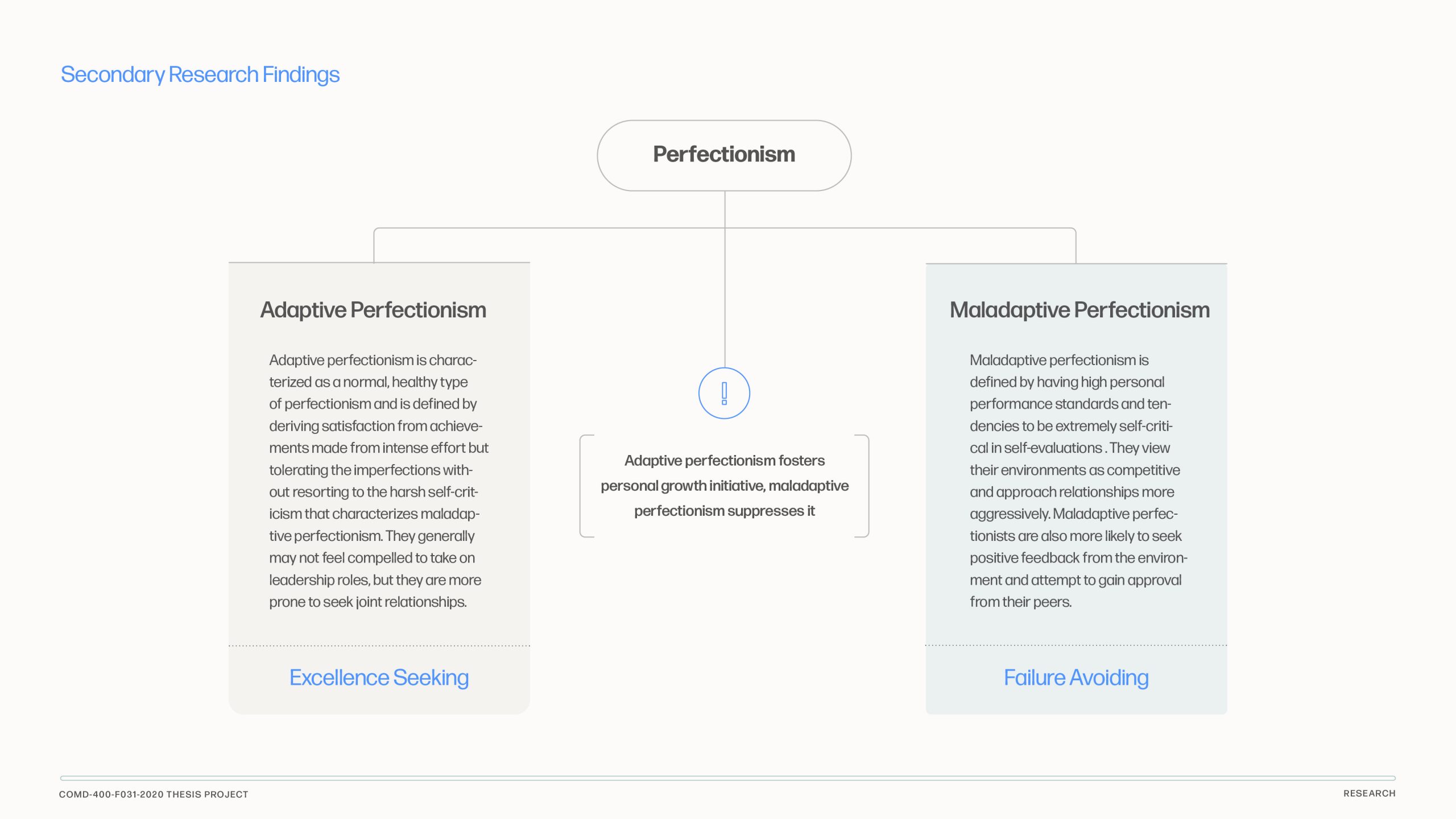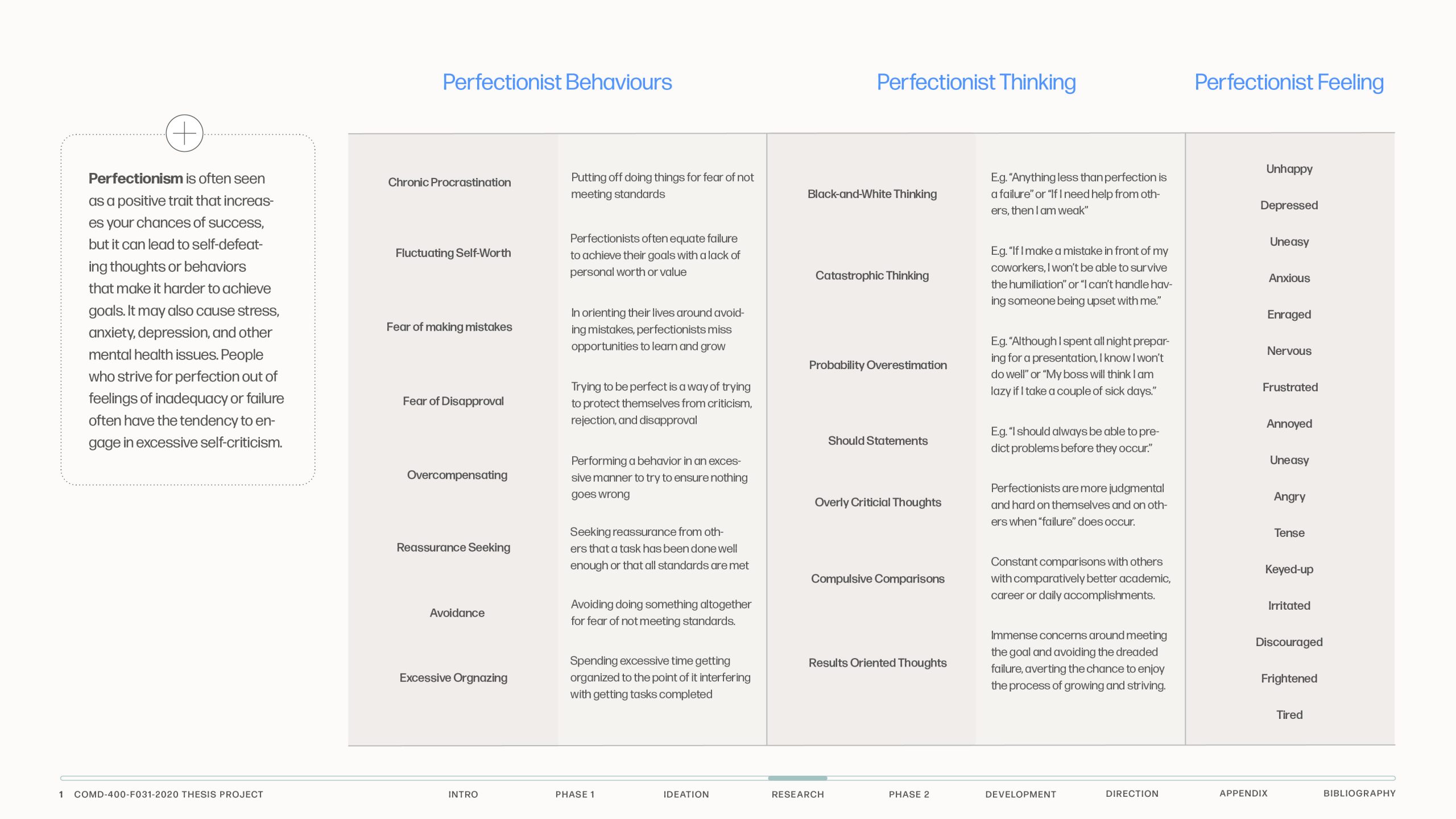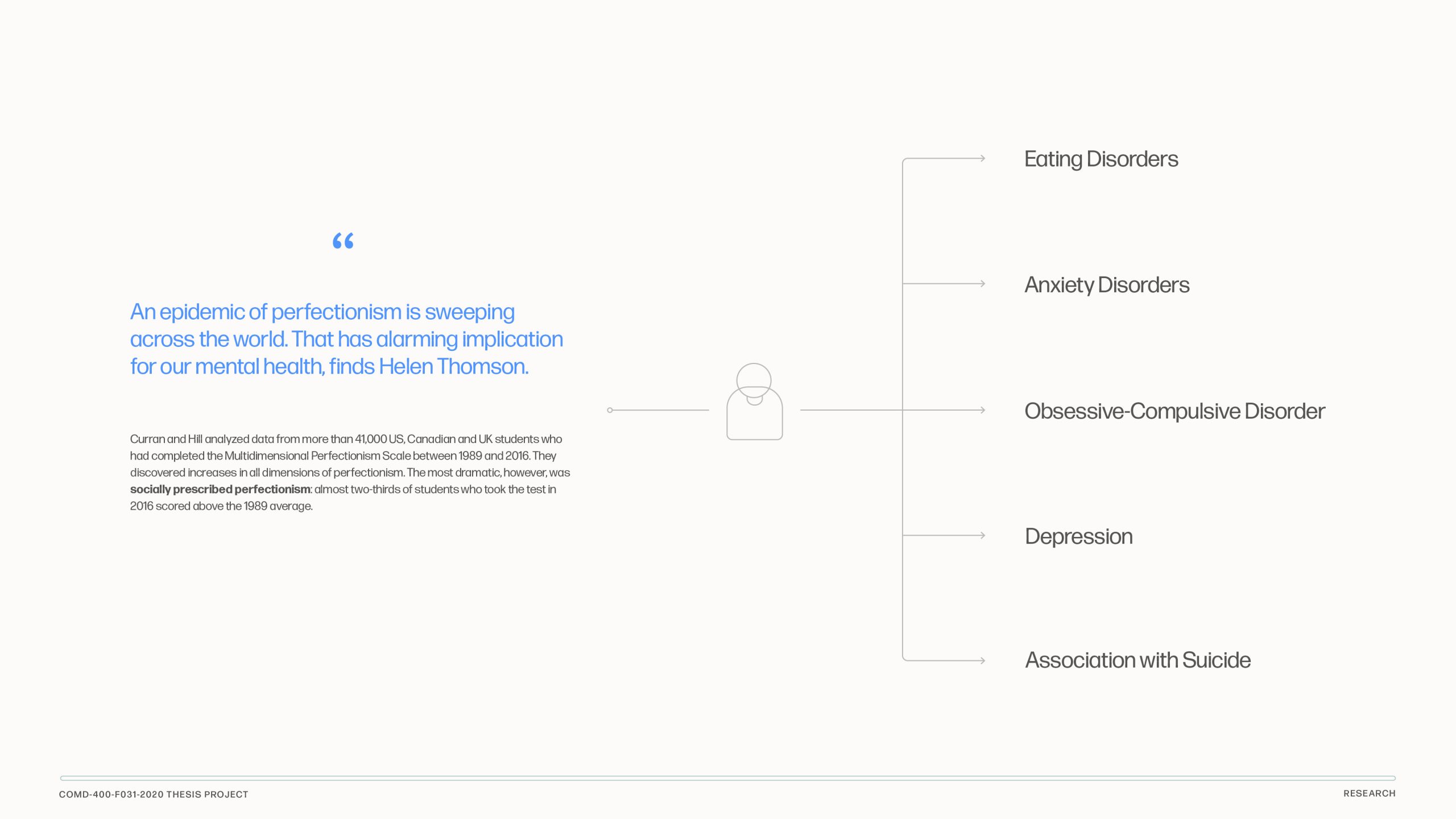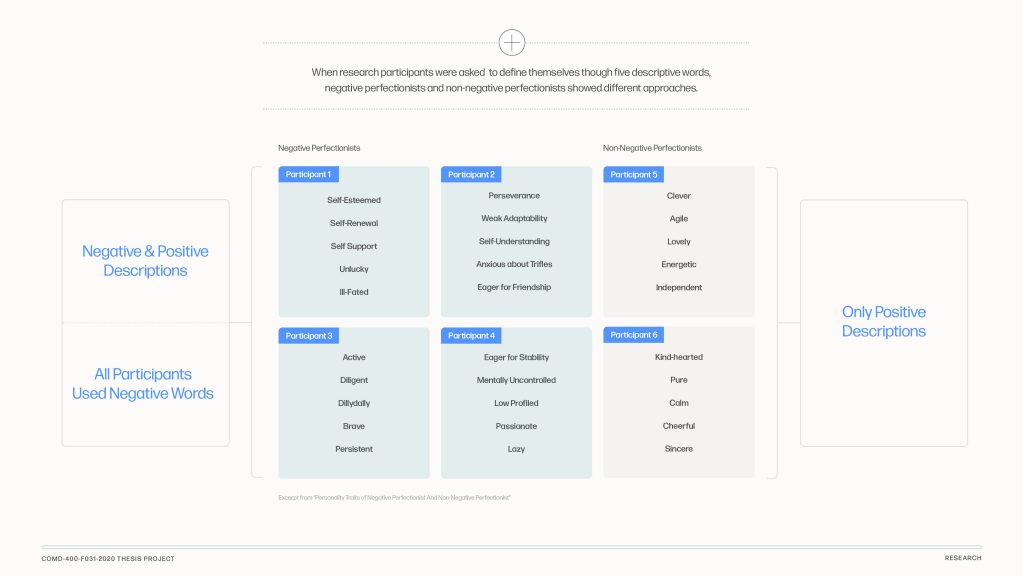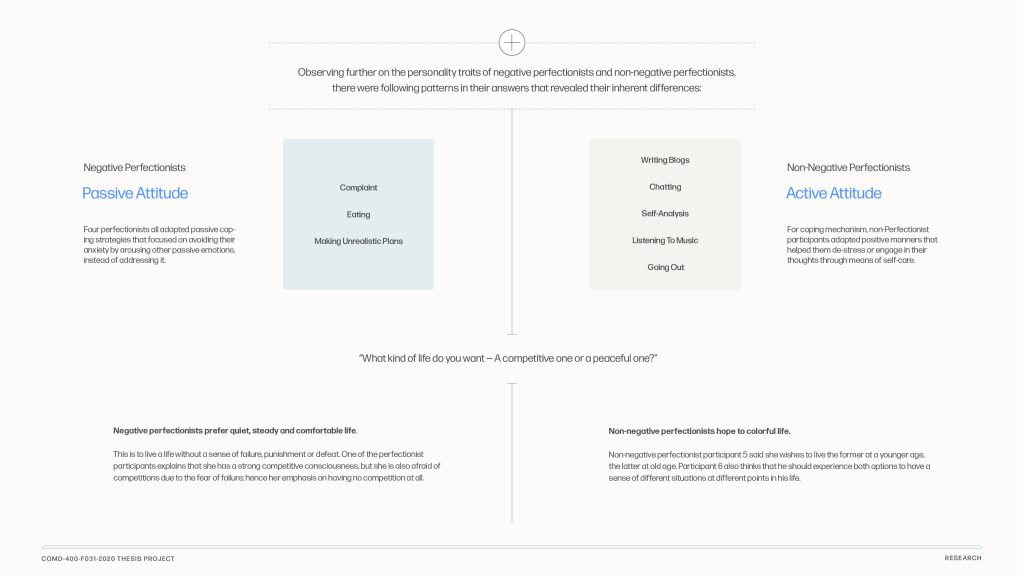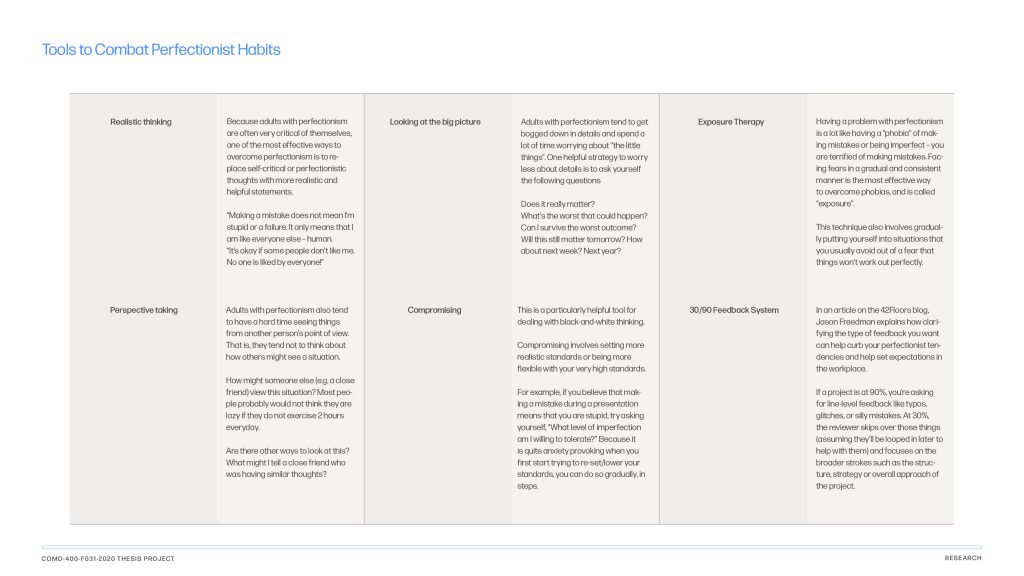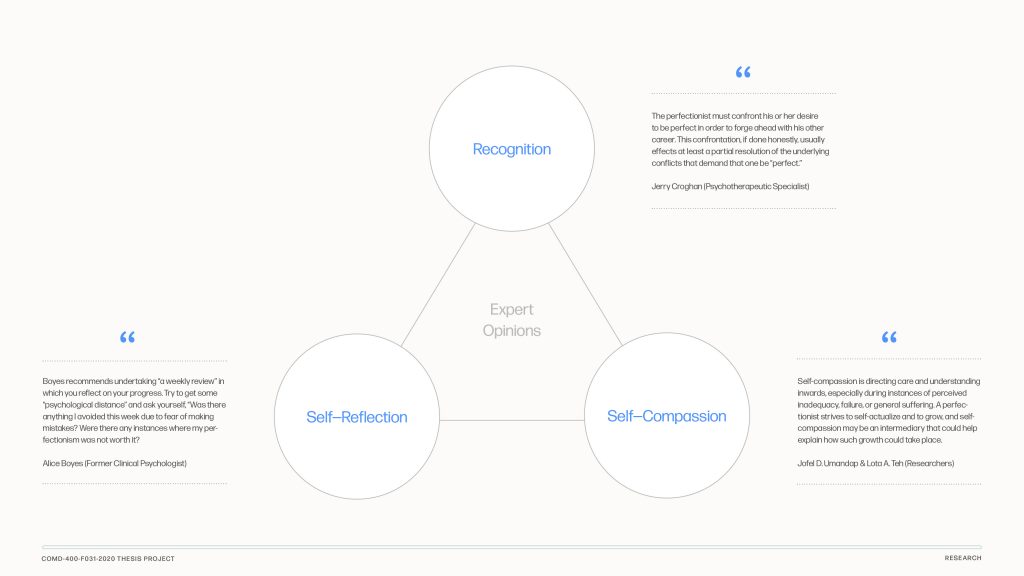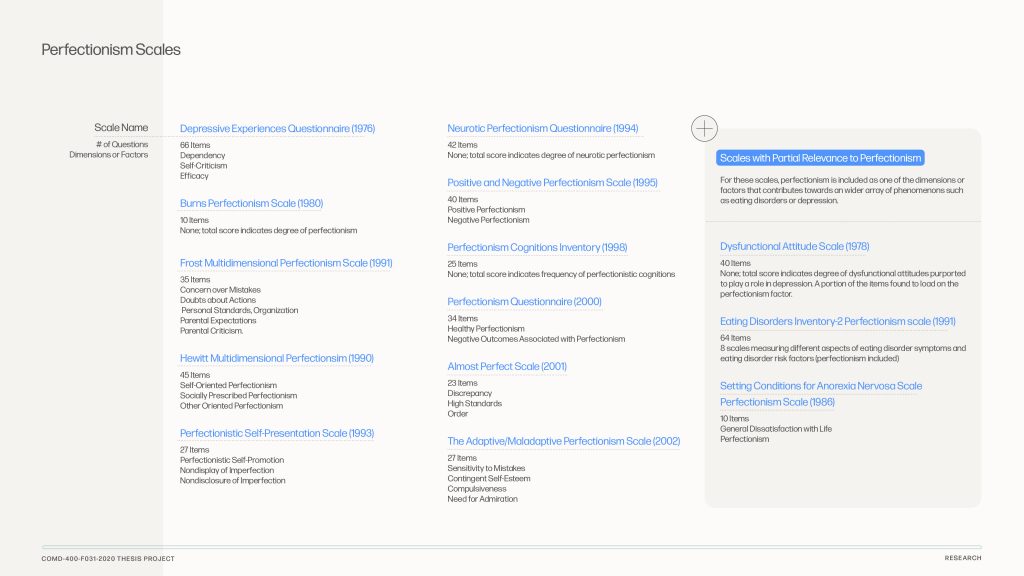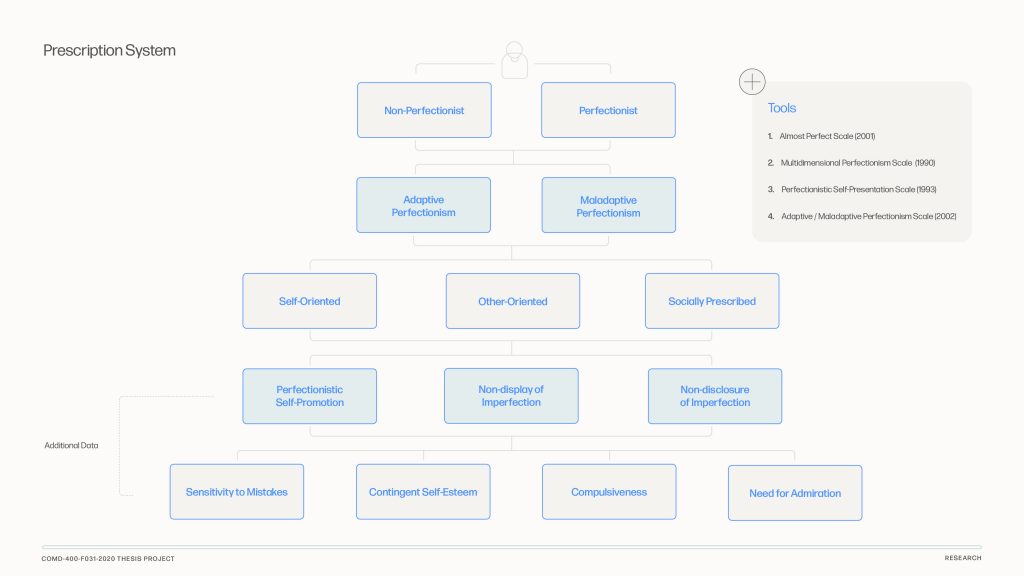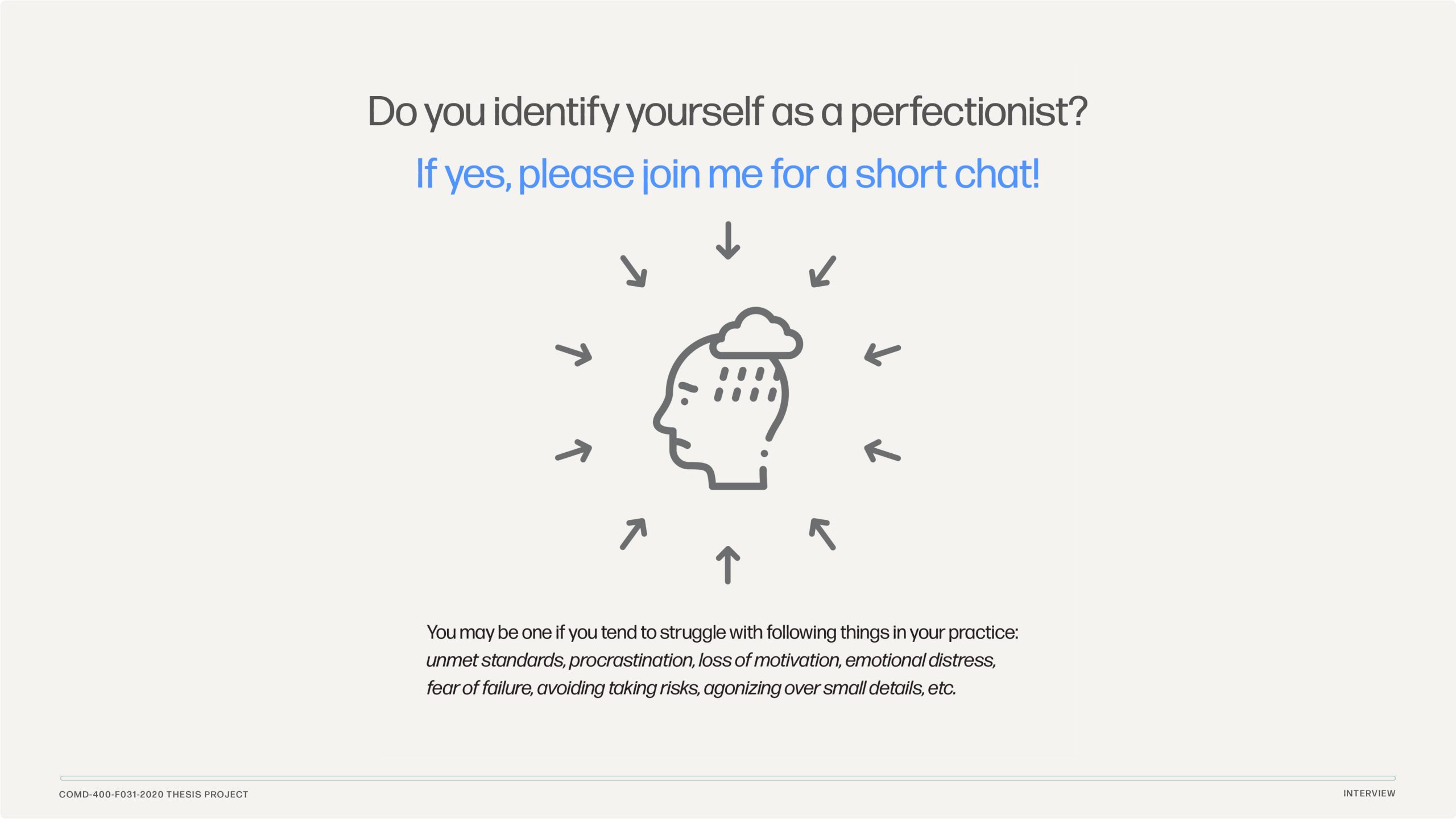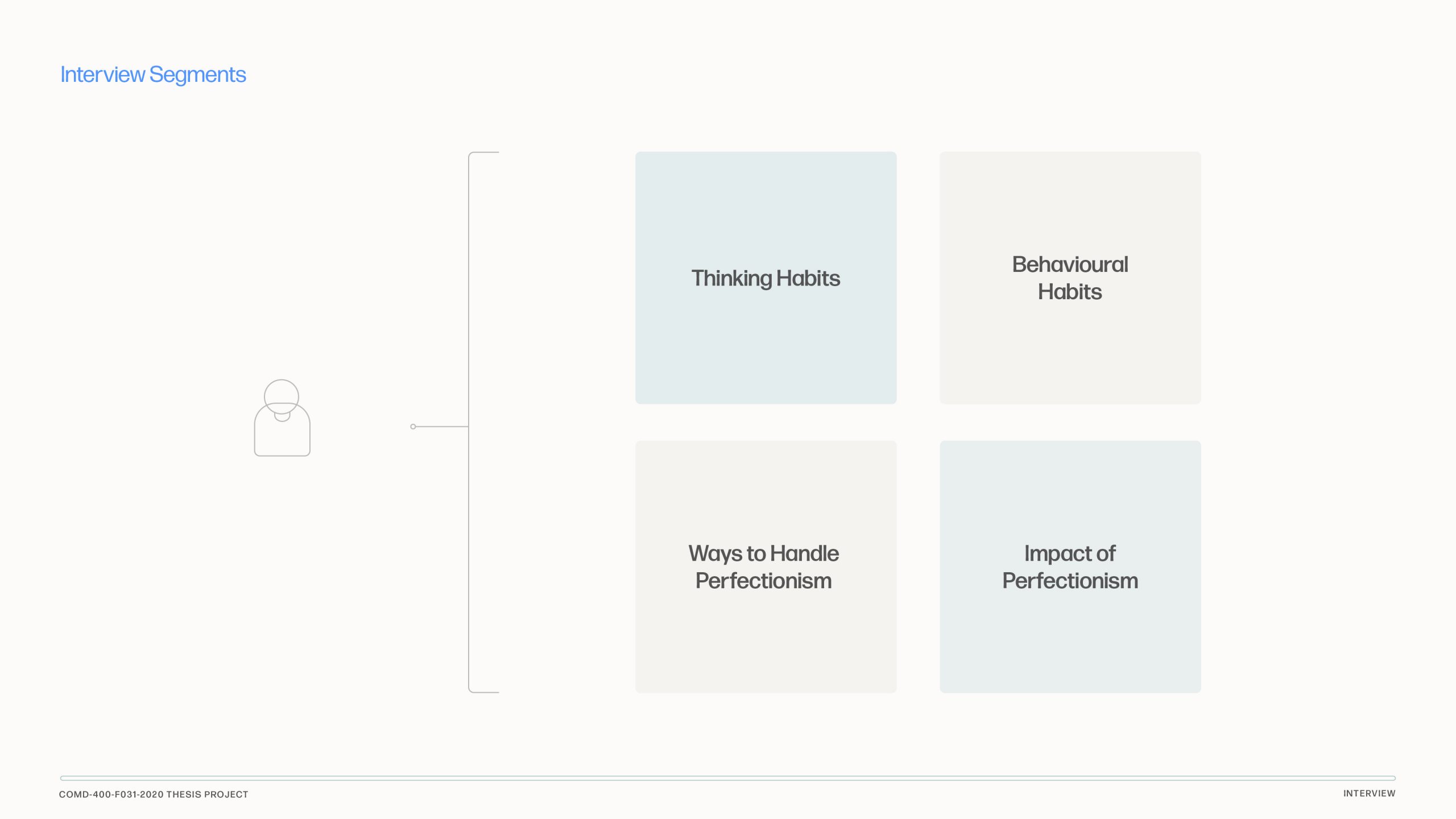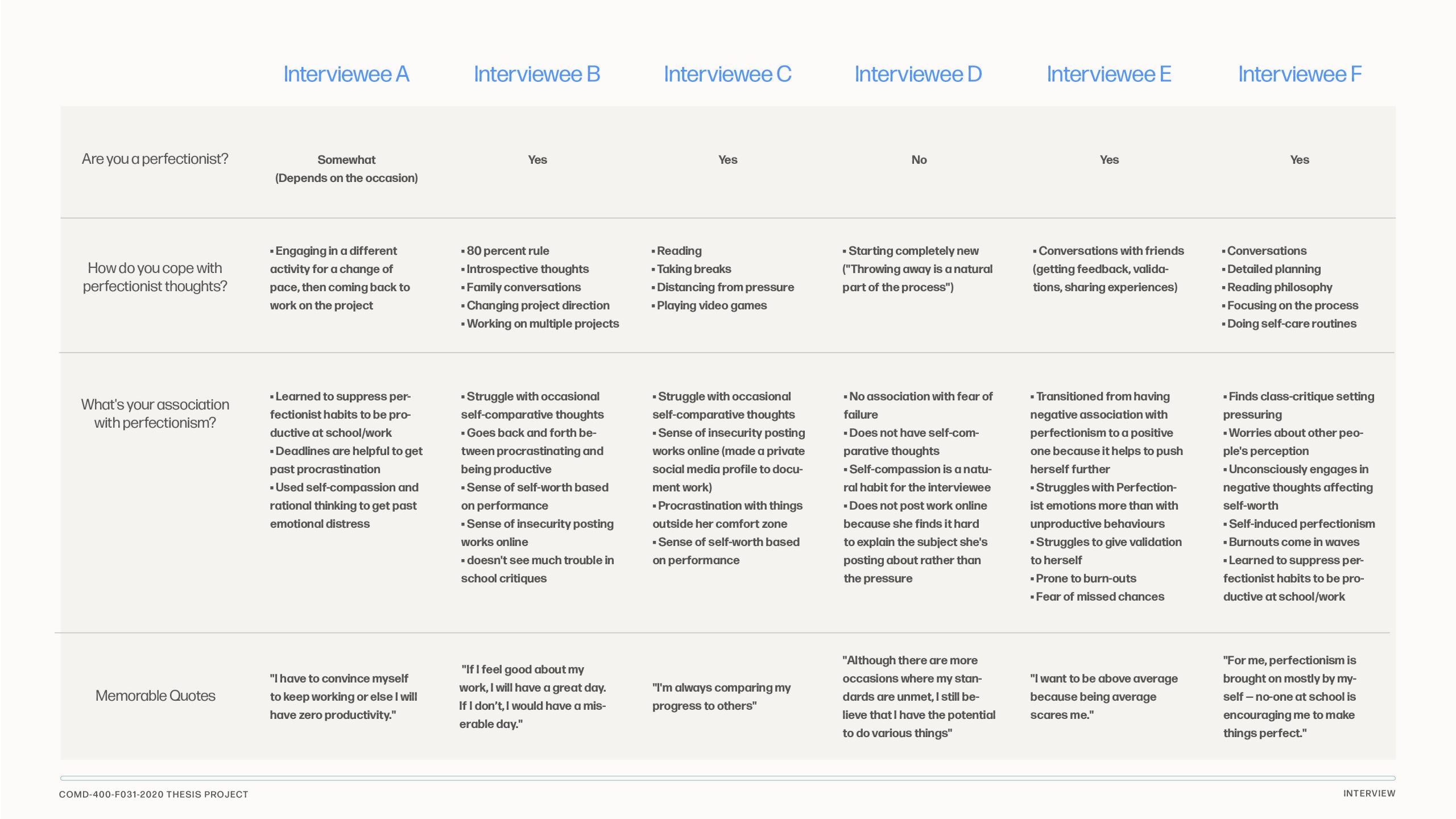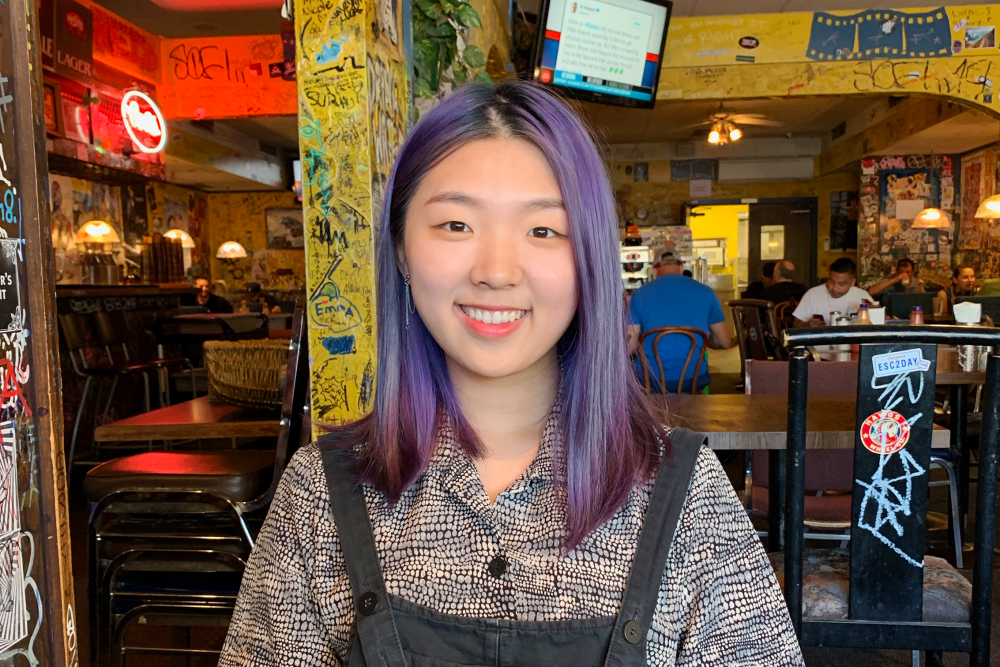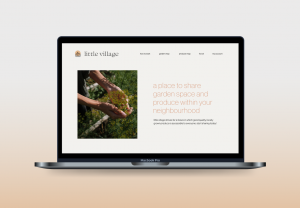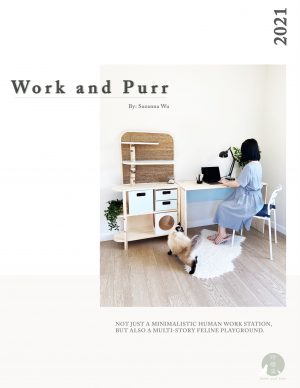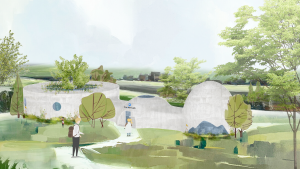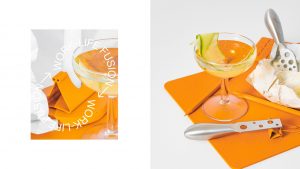Lighten Your Mind, Lighten Your Night!
Sophia Haelyoung Cho
Can one ever reach perfection?
We all know the answer to that question is simply “no”, but for some reason many of us still struggle to race towards that illusion. Underlying the need to be perfect is the feeling that “if I am not perfect, I am nothing,” and hence, the cycle of rumination begins where perfectionists continuously undermine their self-value. Having both experienced and witnessed this phenomenon in the modern society, I began this design research project as a journey to explore how the cycle of perfectionism can be broken through creative thinking and conceptual design solution.
Research
In order to approach the problem space of perfectionism, it is first required to gain knowledge of the subject to properly understand its recurring patterns. These are some of the highlights from the research that gave me a wider view of the problem space. This process allowed me to see the problem space beyond my experience of perfectionism. In particular, the research helped me realize how perfectionism can infiltrate into all aspects of life including school, relationships, house and work settings, and that I was looking at a problem space much bigger than I had originally anticipated. With this realization, I broadened my design scope for it to apply to a wide array of demographic struggling with perfectionism in their life.
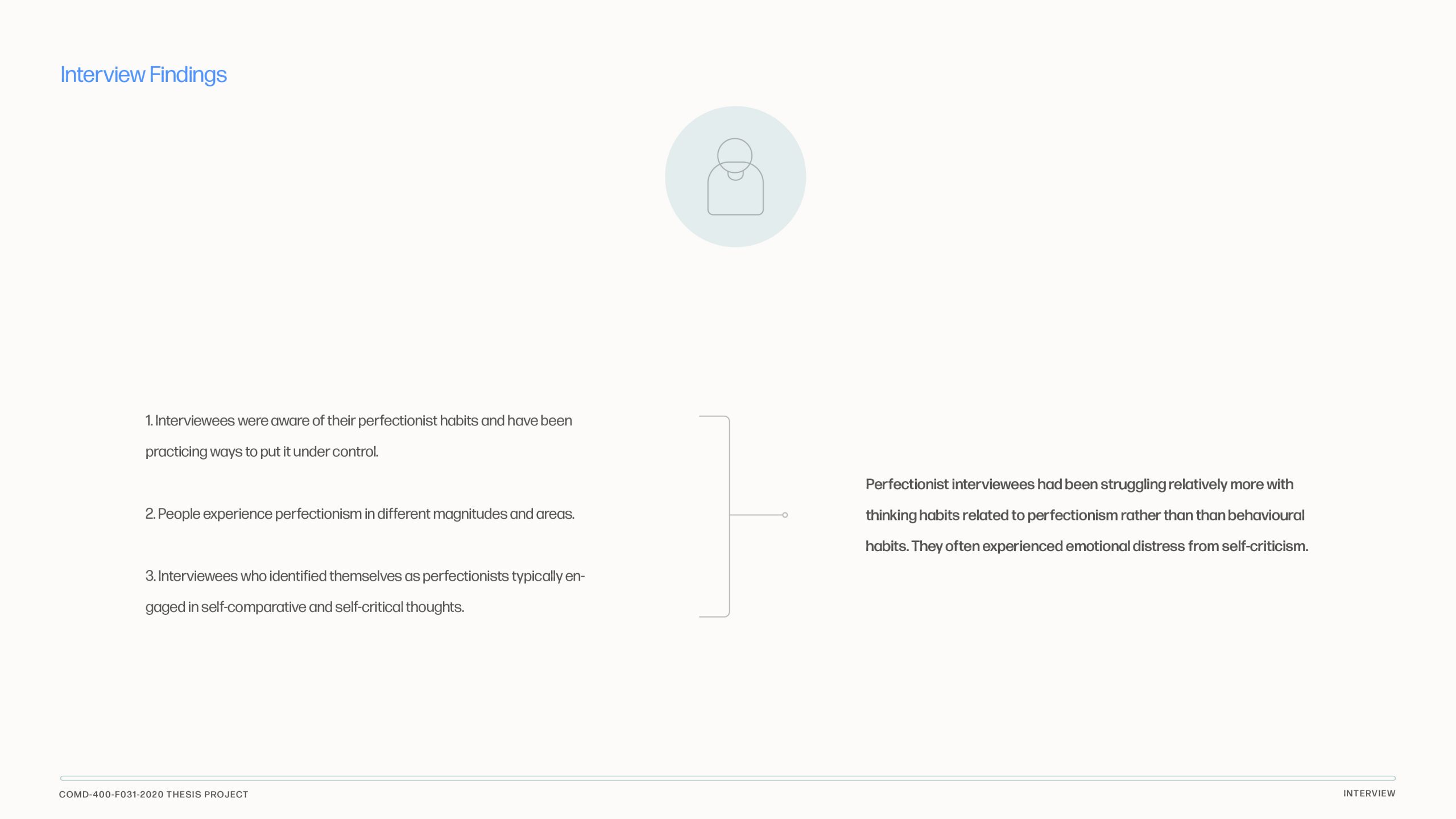
Interviews
While the purpose of the research was to learn about perfectionism in general, conducting interviews on the other hand, created an opportunity for me to understand the very people who were associated with this problem space. Within the time frame of approximately 30 minutes, interviews were conducted in a conversational manner to create a comfortable environment for the interviewees to freely bring up any memories of their perfectionist occurrences. This setting helped to discover a variety of ways perfectionism can be associated in one’s life outside the frame of interview questions that were prepared from static research data.
The findings from the interview sessions also helped to narrow down the problem space to tackle with my design concept. For example, it was observed that interviewees tend to struggle relatively more with perfectionist thoughts than with perfectionist behaviours, and that they commonly experience emotional distress from heavy self-criticism. From this finding, I was able to direct my design plan to focus on combatting the mental impact of perfectionism.
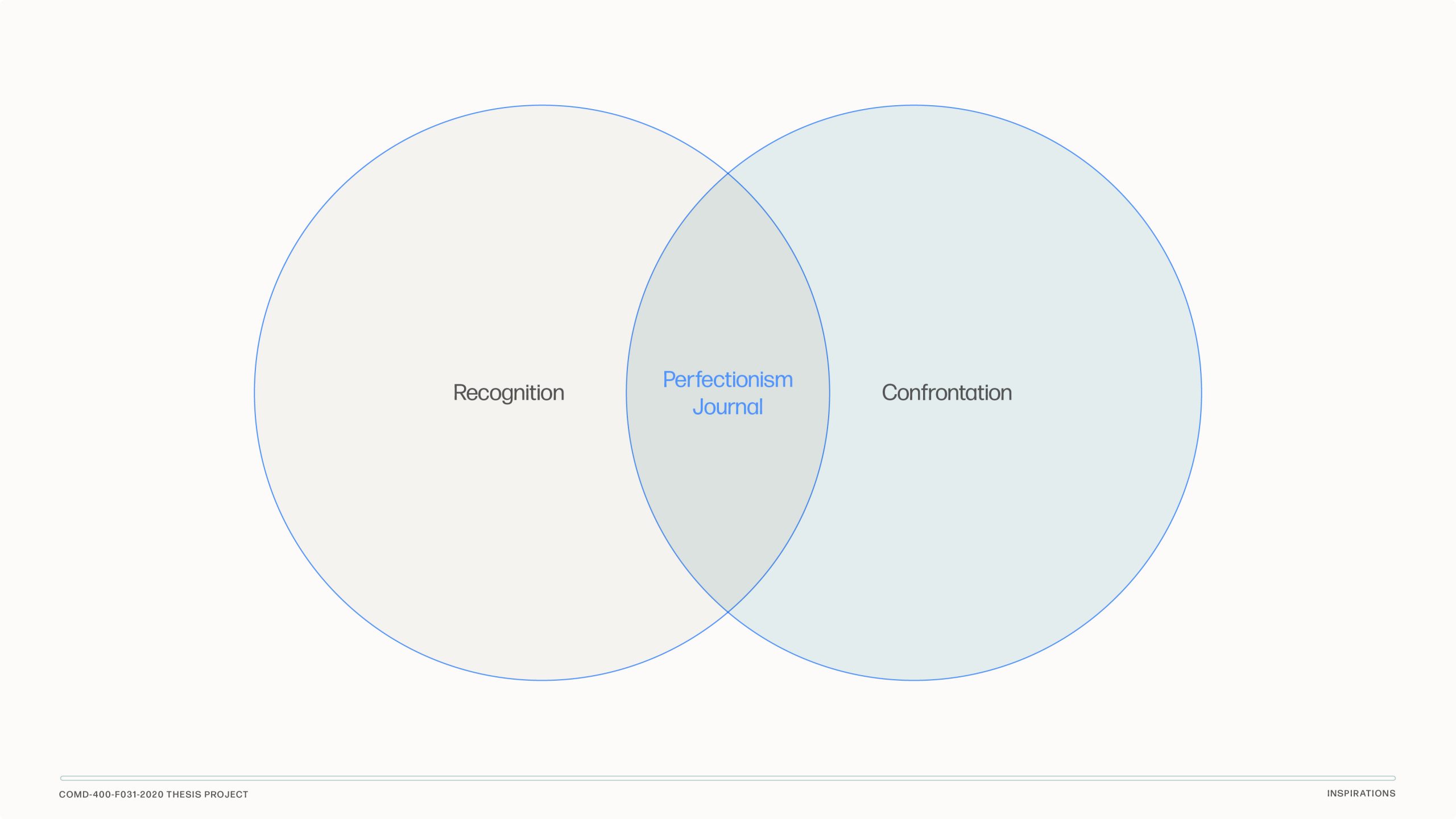
Inspirations
With the critical information that was discovered from the research and interview phase, I began thinking about how I can merge those different findings in my project. To find inspirations, I particularly looked into publications like, “When Perfect Isn’t Good Enough: Strategies for Coping with Perfectionism” (Antony, M.M. & Swinson, R.P.) and “Cognitive Behavioural Treatment of Perfectionism” (Egan et al.) that offered multiple tools and exercises for perfectionists to understand and deconstruct the core of their perfectionist habits. Amongst different options, what caught my eyes is the idea of a “perfectionism journal” where one would record entries whenever their perfectionist habits resurface. It’s a very simple strategy that helps the users to become aware of their flow of actions and thoughts by catching themselves in the act of it. Psychotherapeutic Specialist Jerry Croghan states, “this confrontation, if done honestly, usually effects at least a partial resolution of the underlying conflicts that demand that one be “perfect.” Thus, my project started off with this objective to create a space for recognition and its subsequent confrontation of one’s perfectionism.
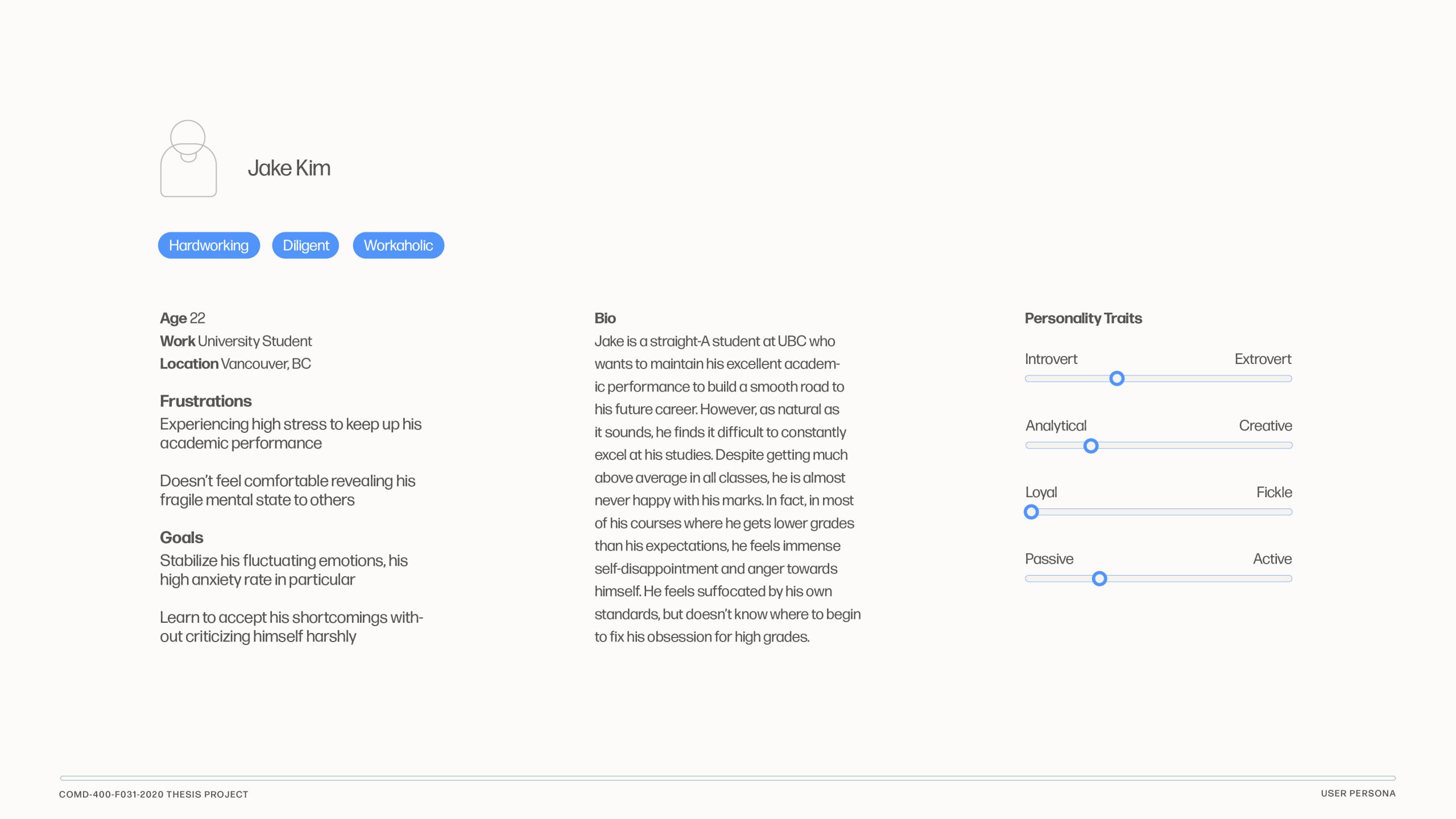
User Persona
Based on the information gathered from the previous research and interviews, I was able to create a persona sheet of my design’s demographic. Amongst the countless ways perfectionism can impact one’s life, these are some of the common struggles of those that may be interested in my design concept, “Lighten.”
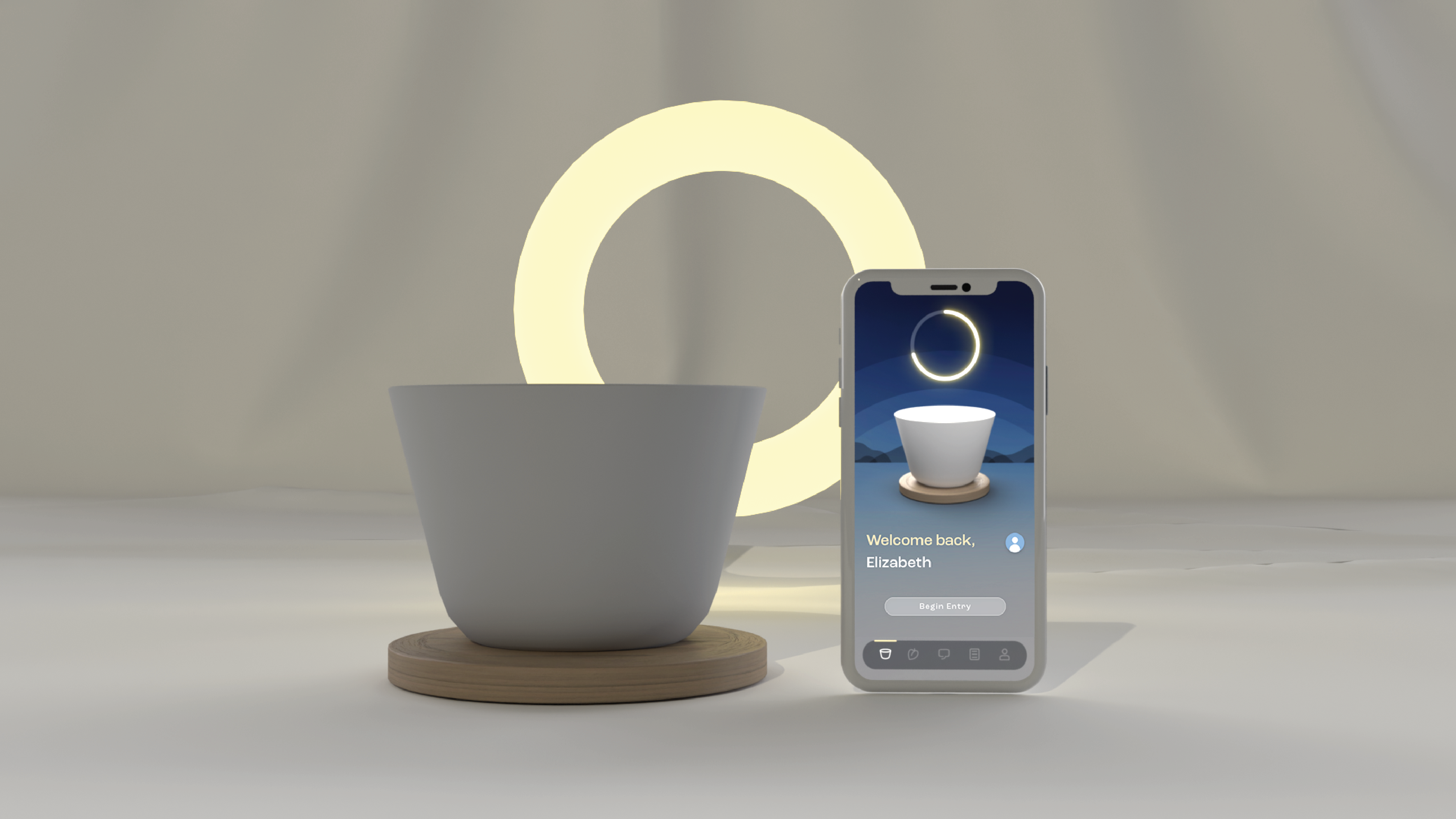
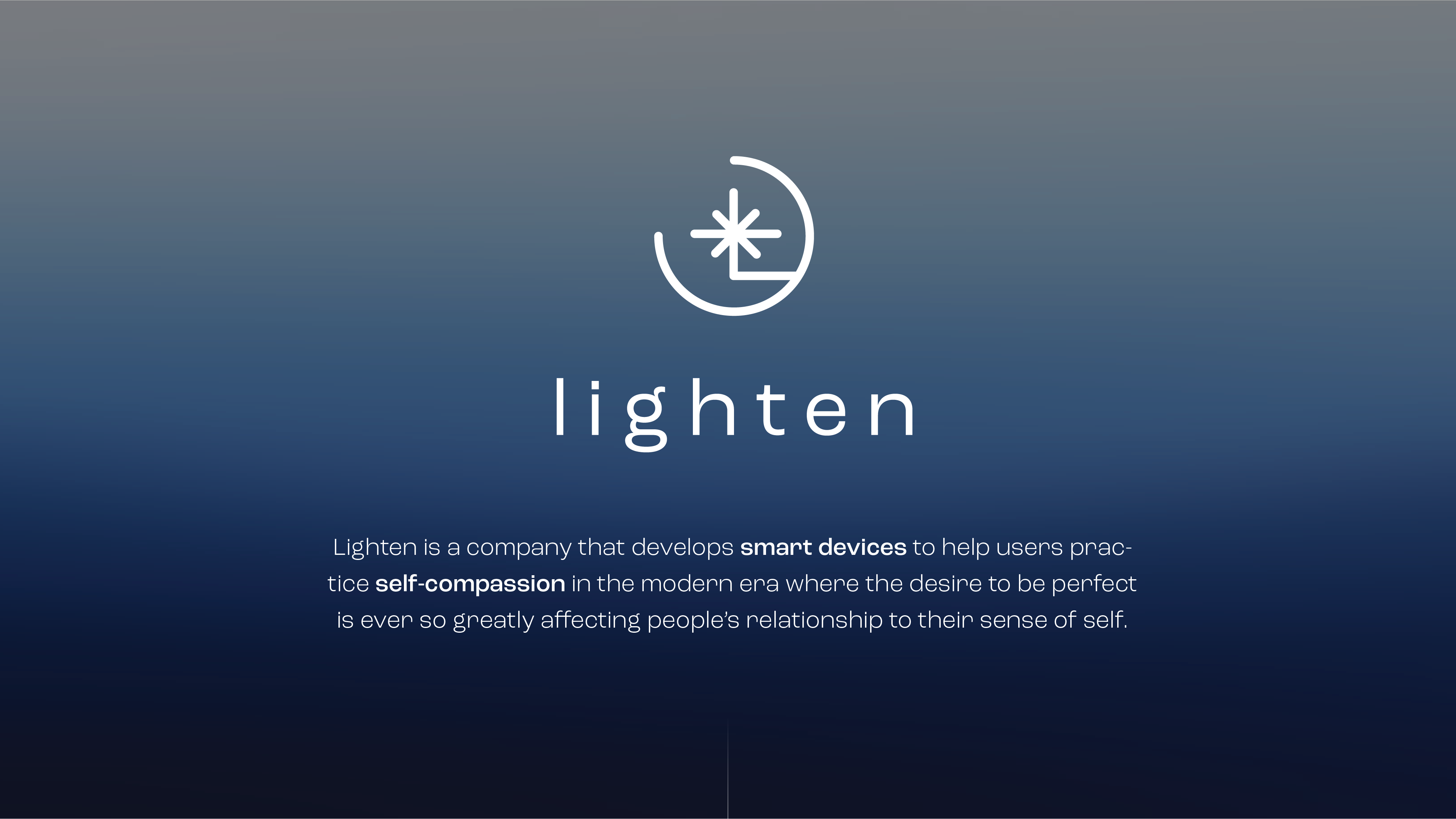
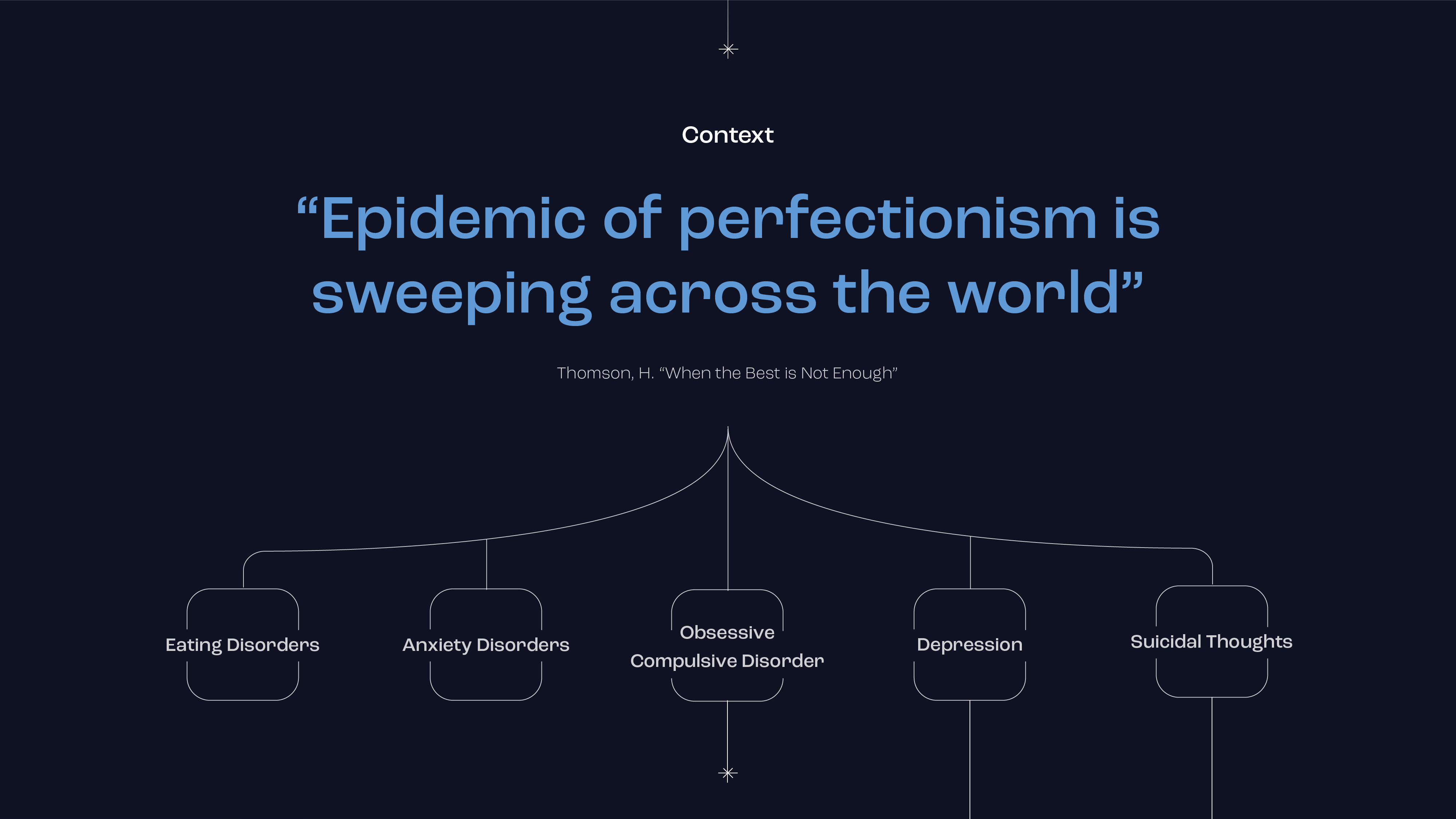
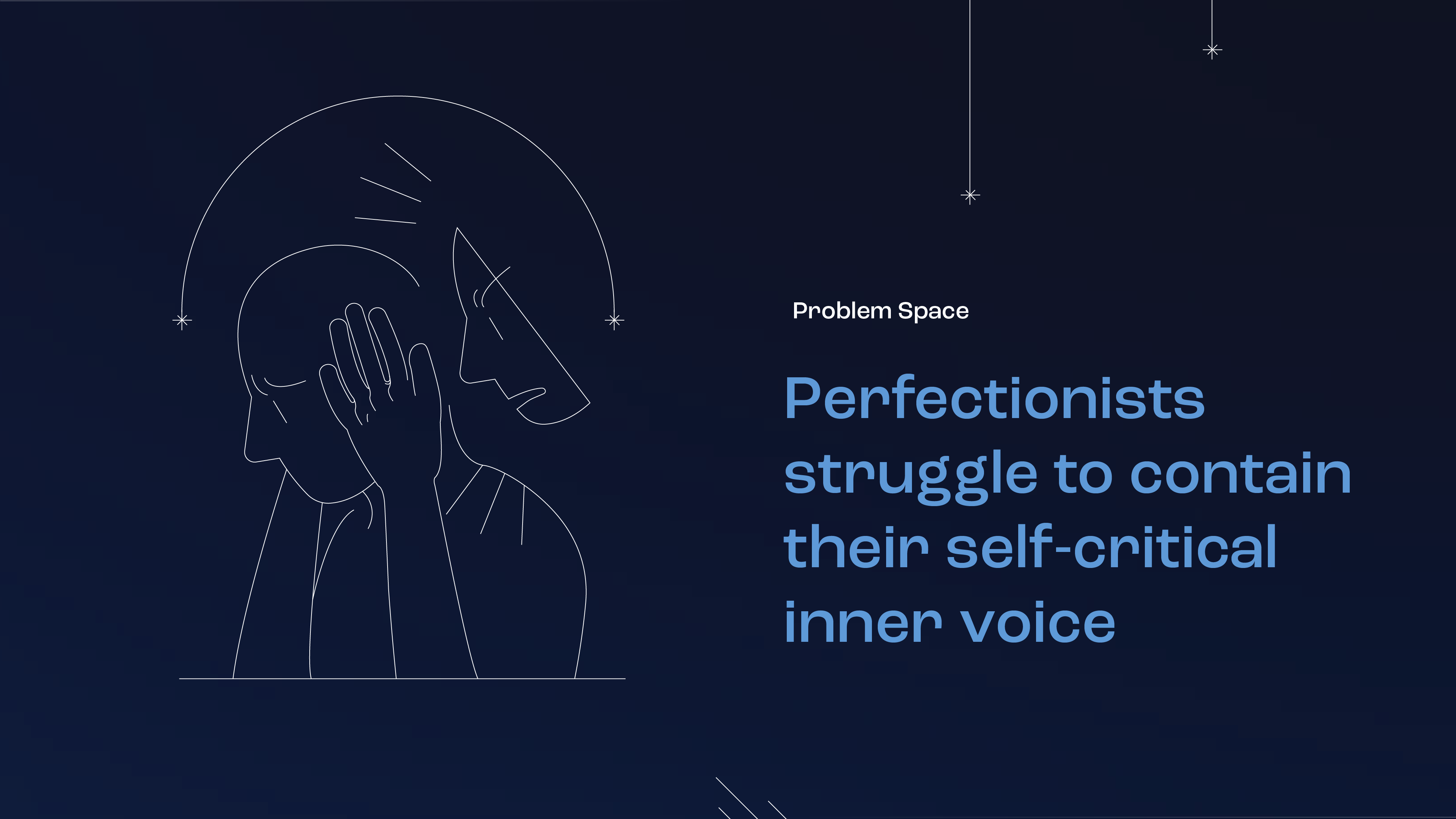
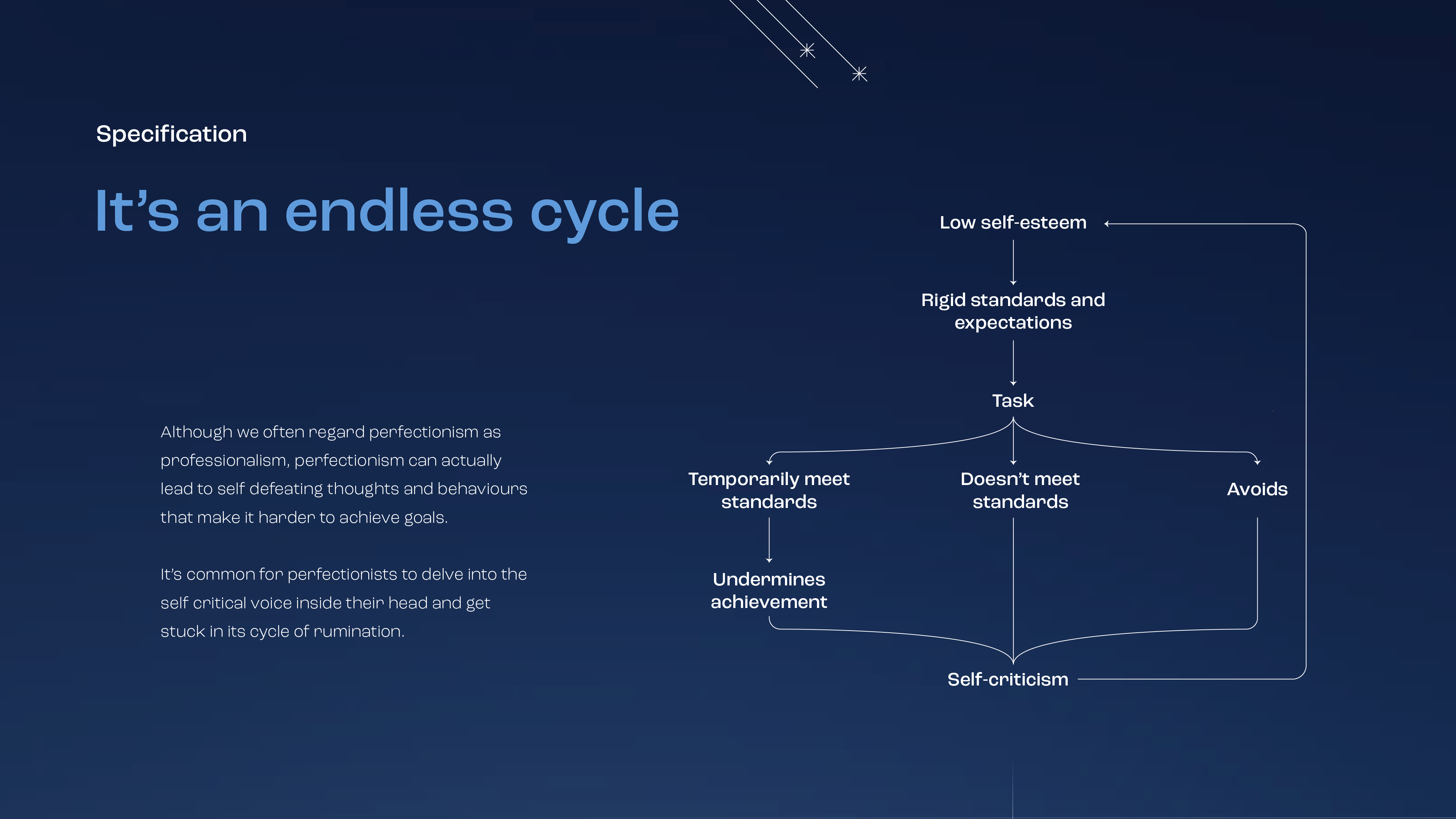
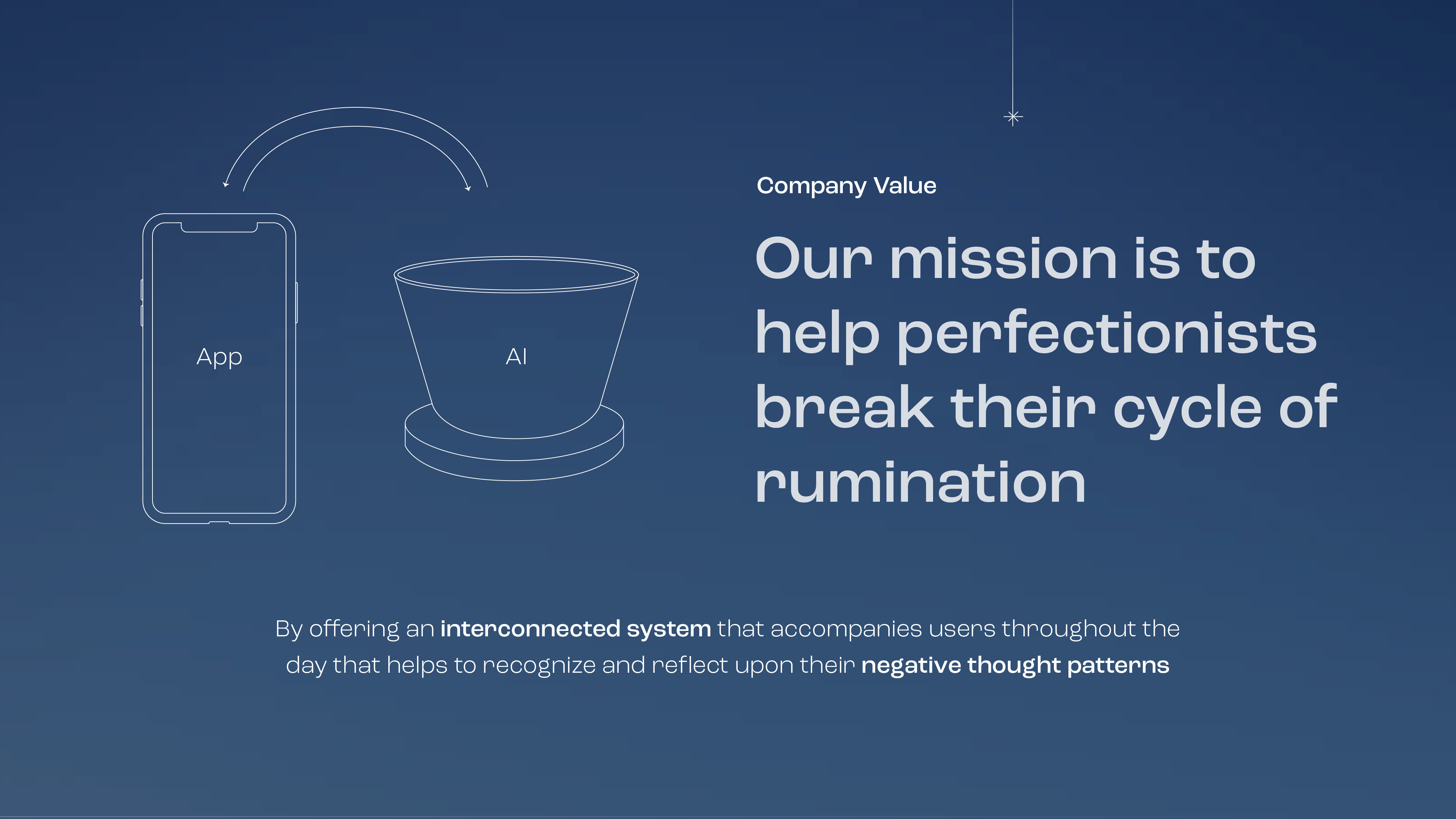
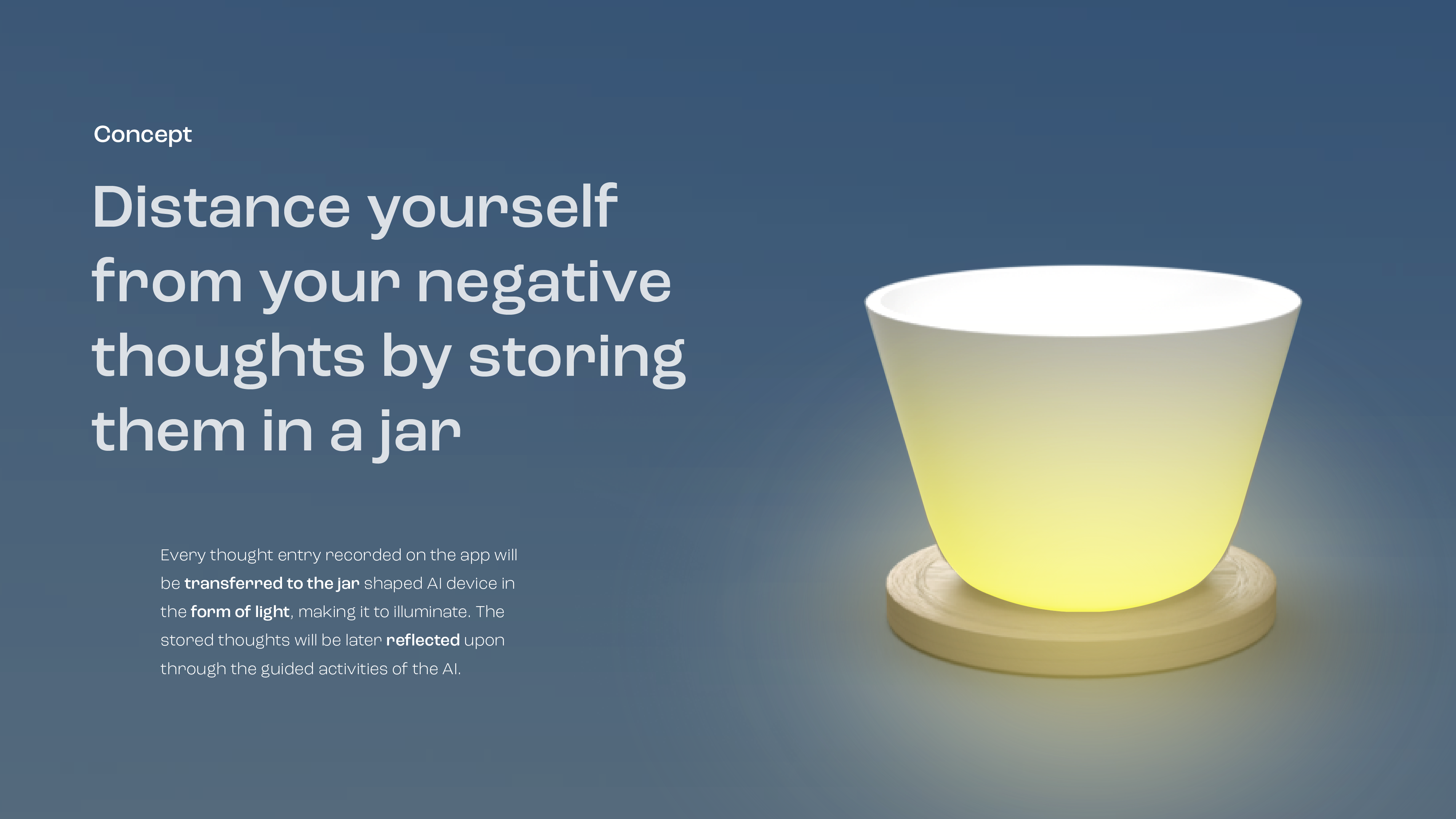
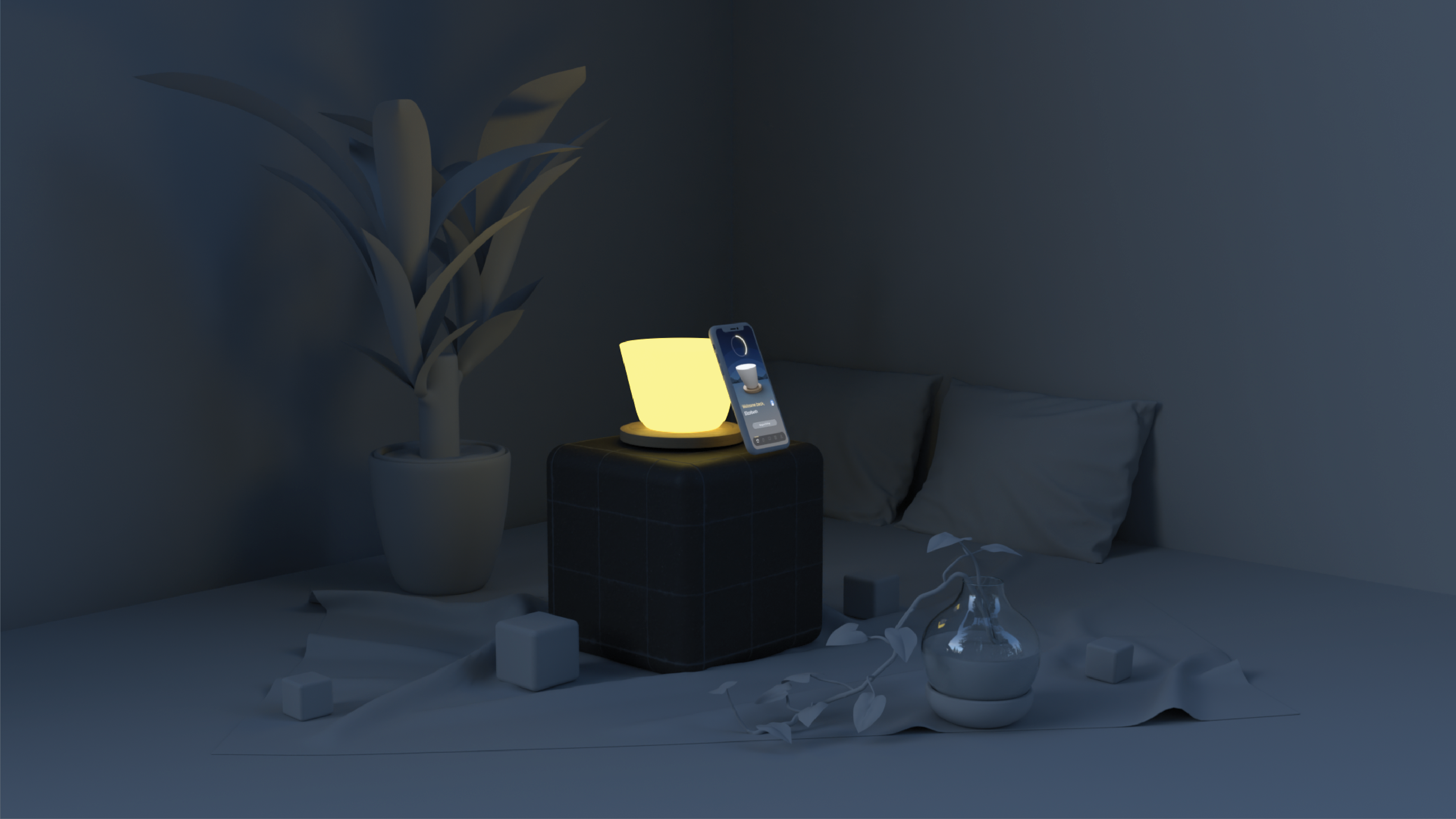
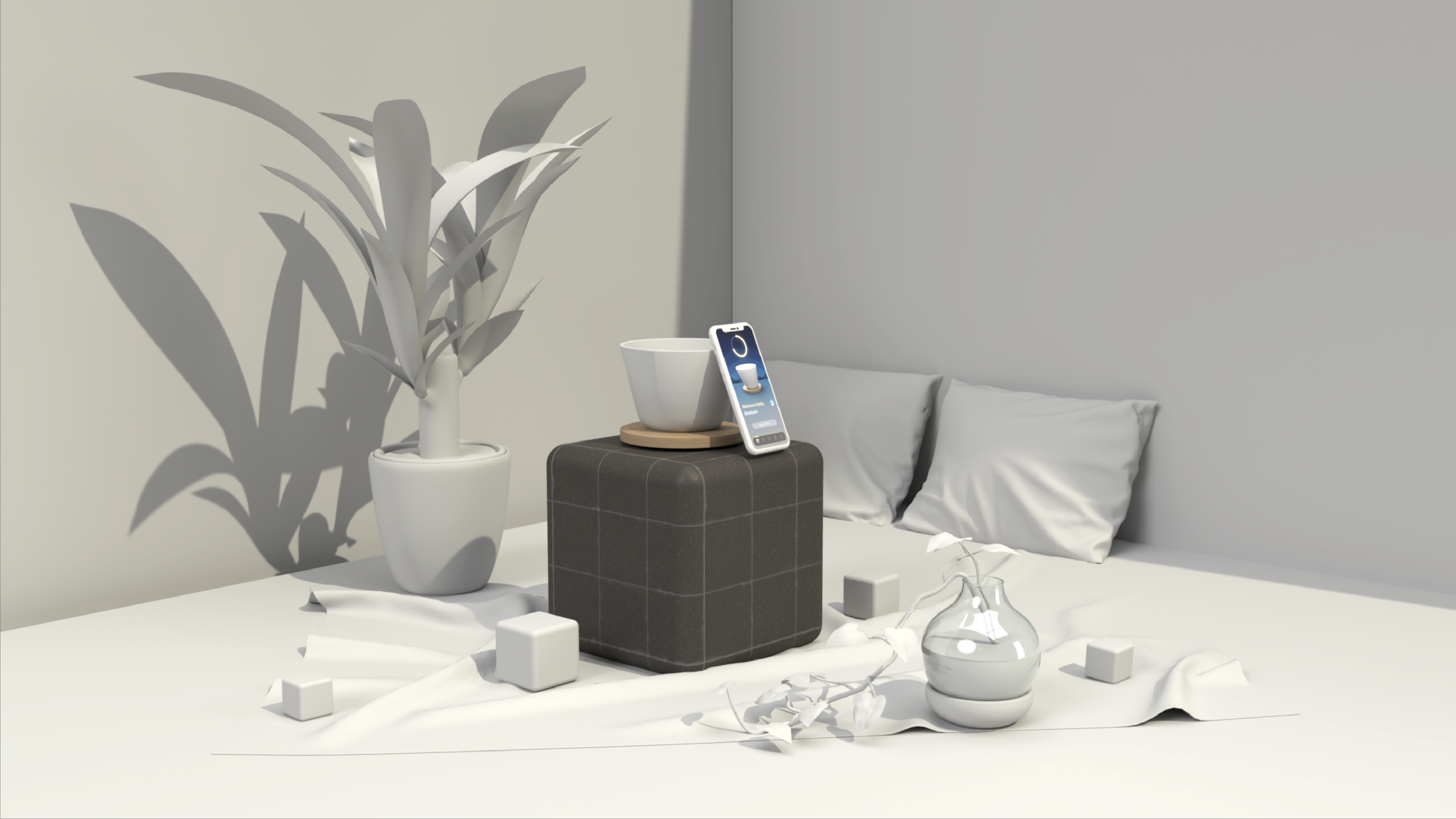
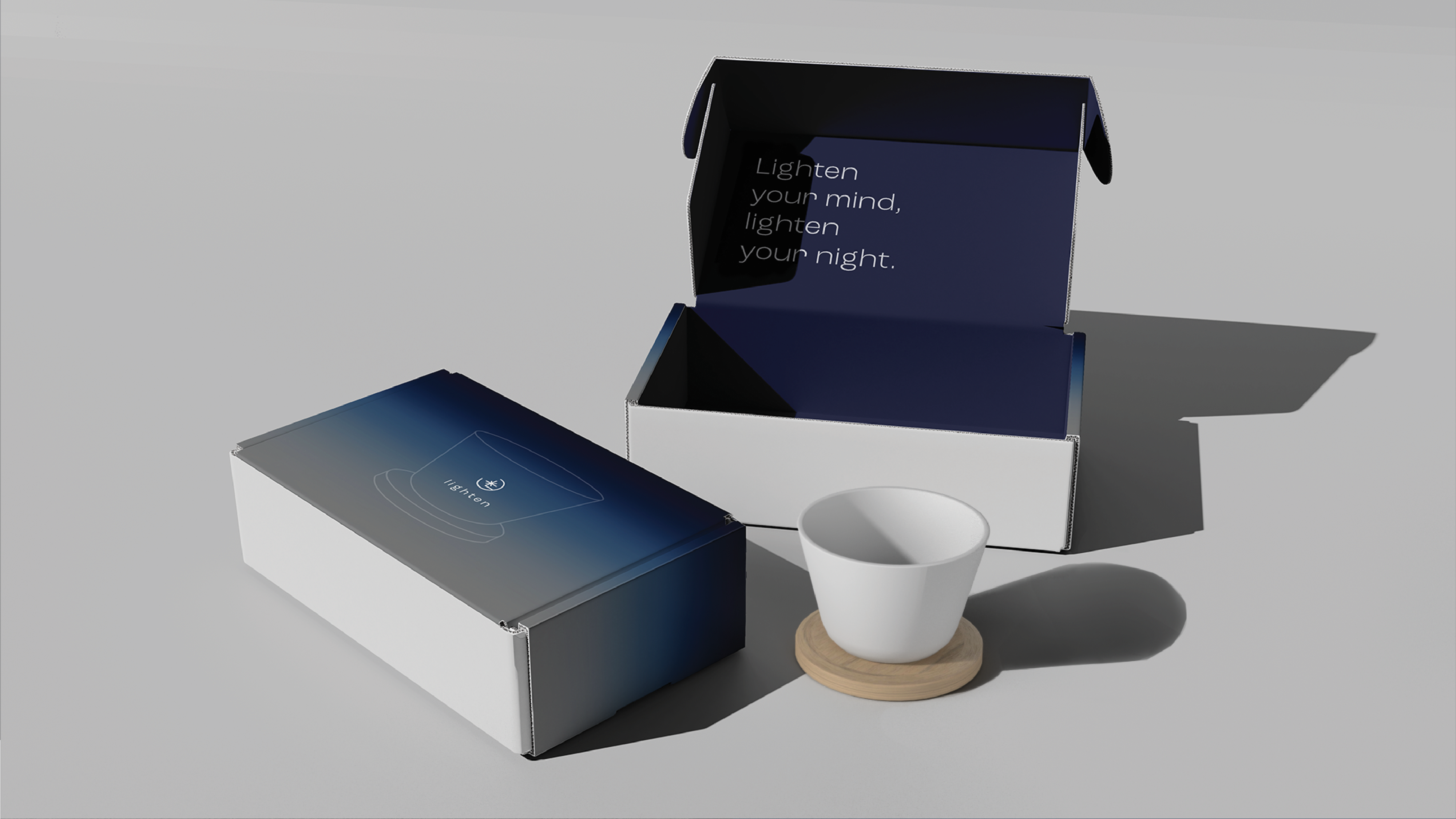
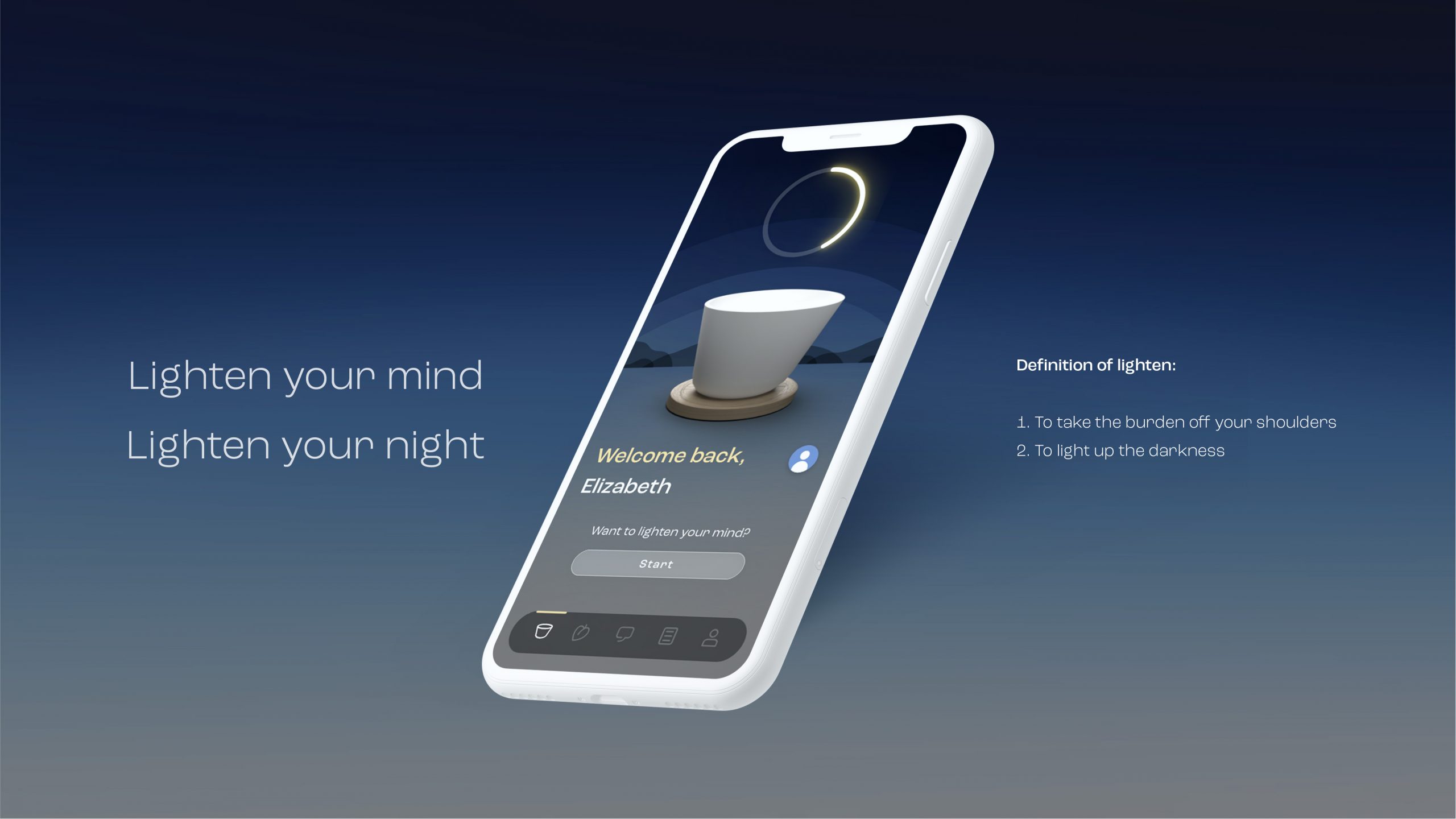
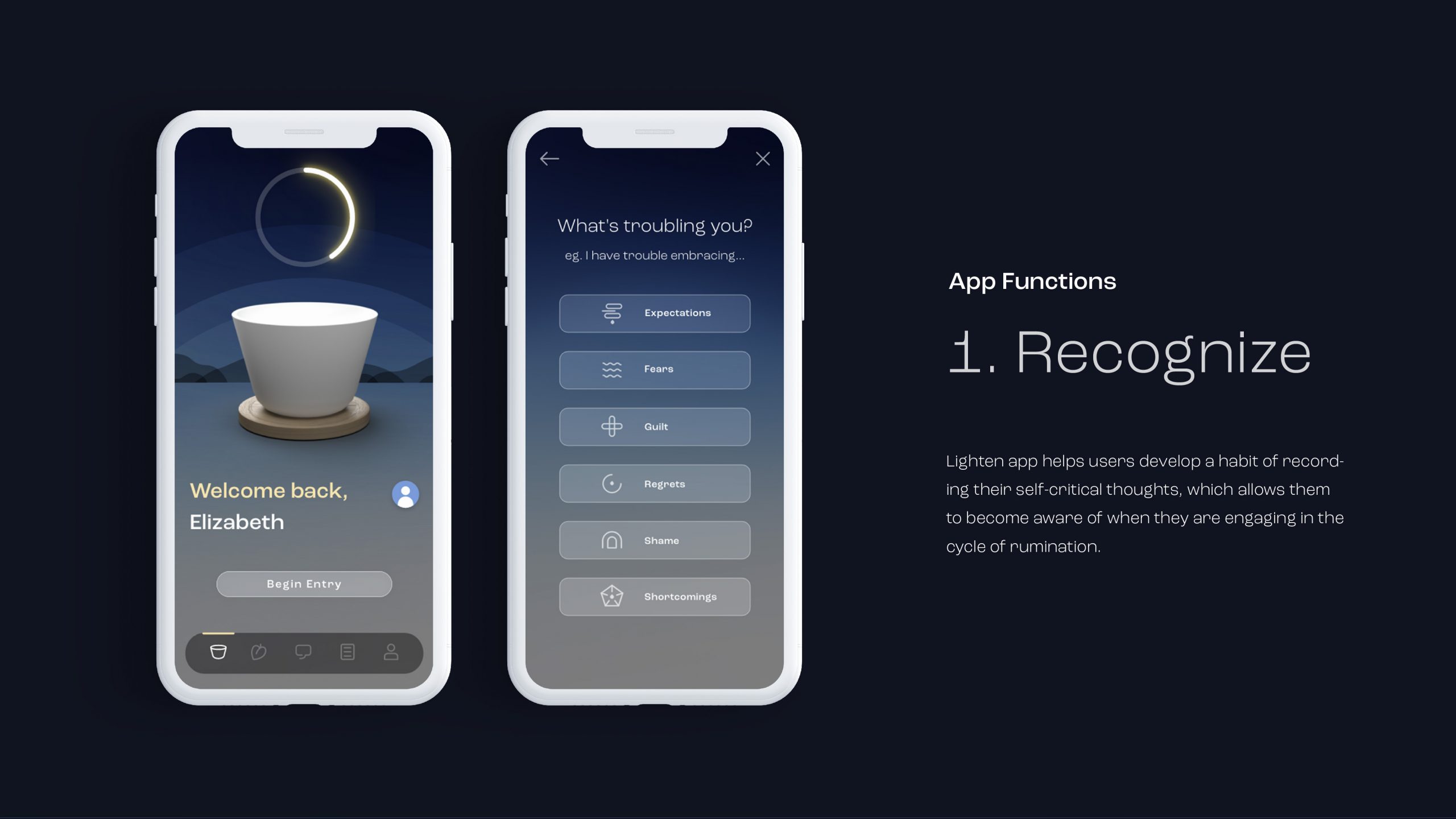
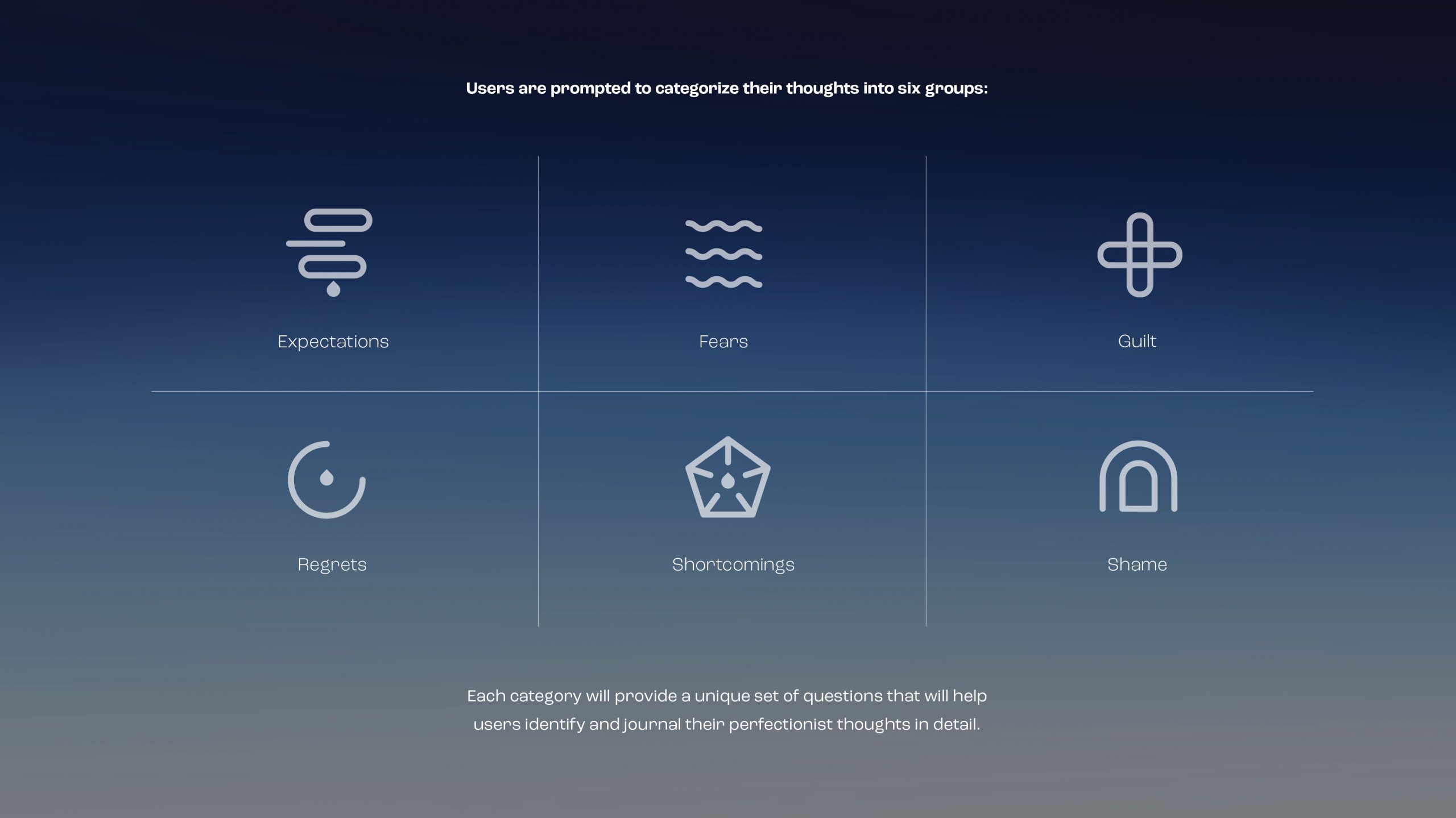
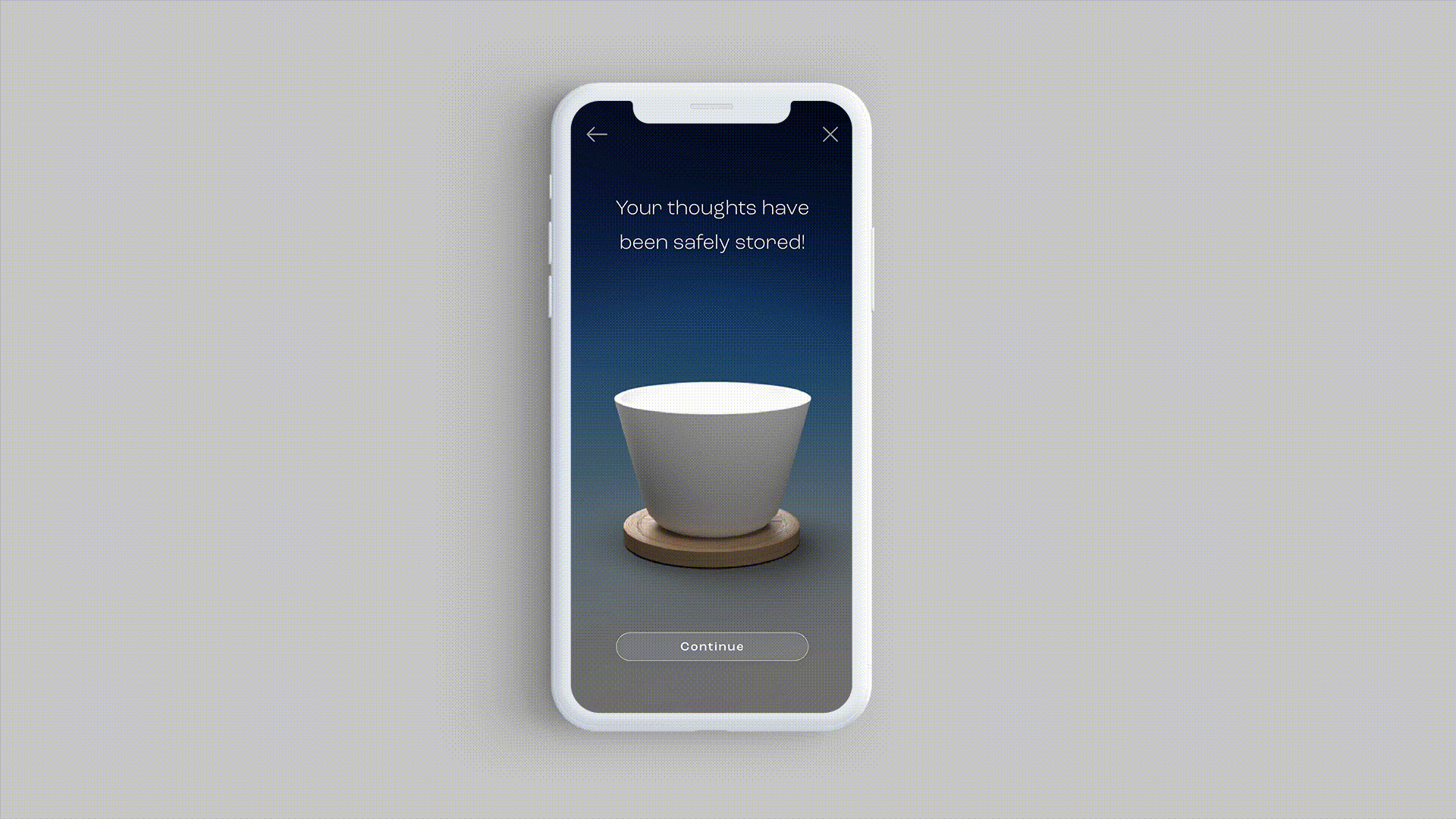
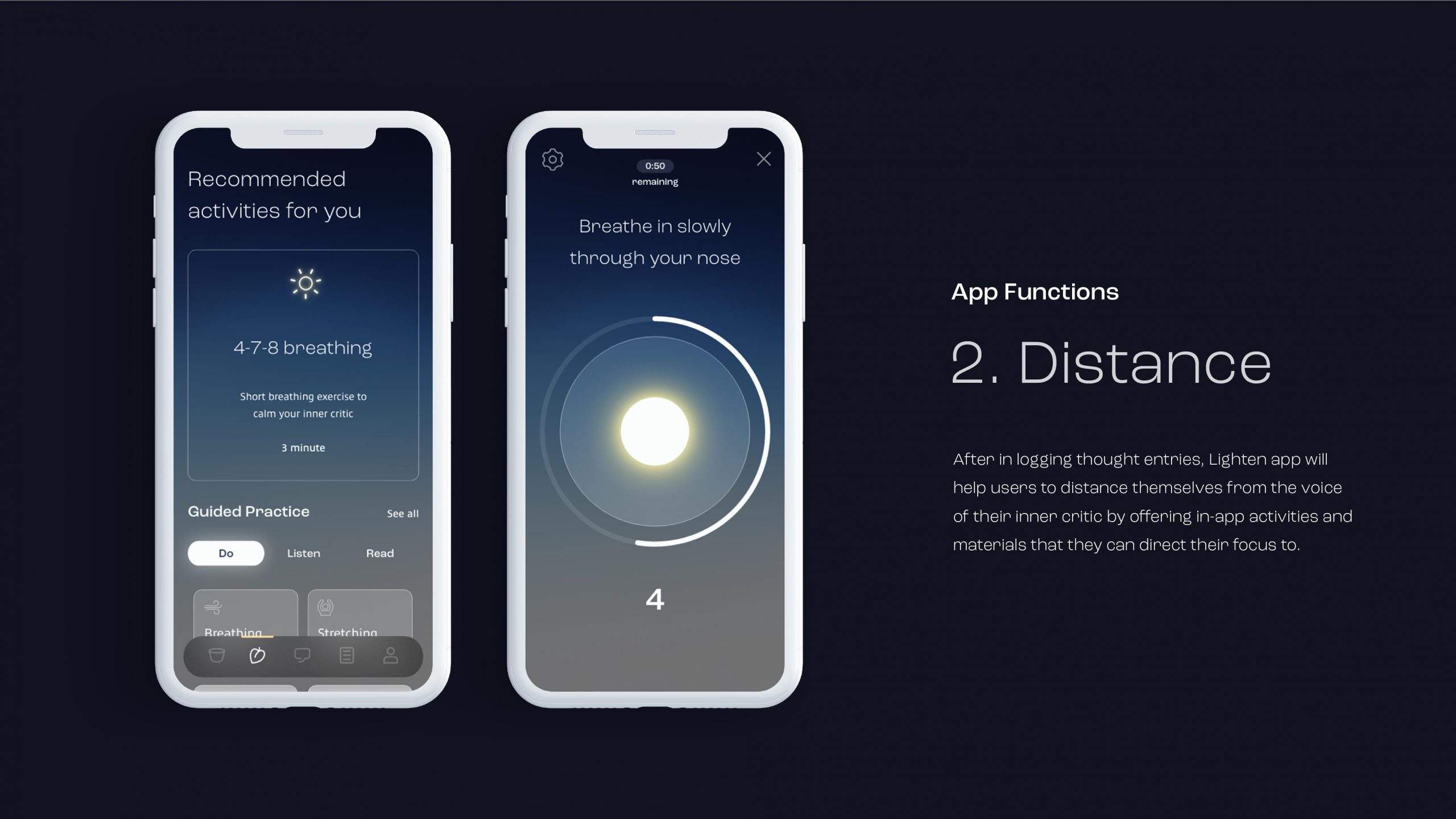
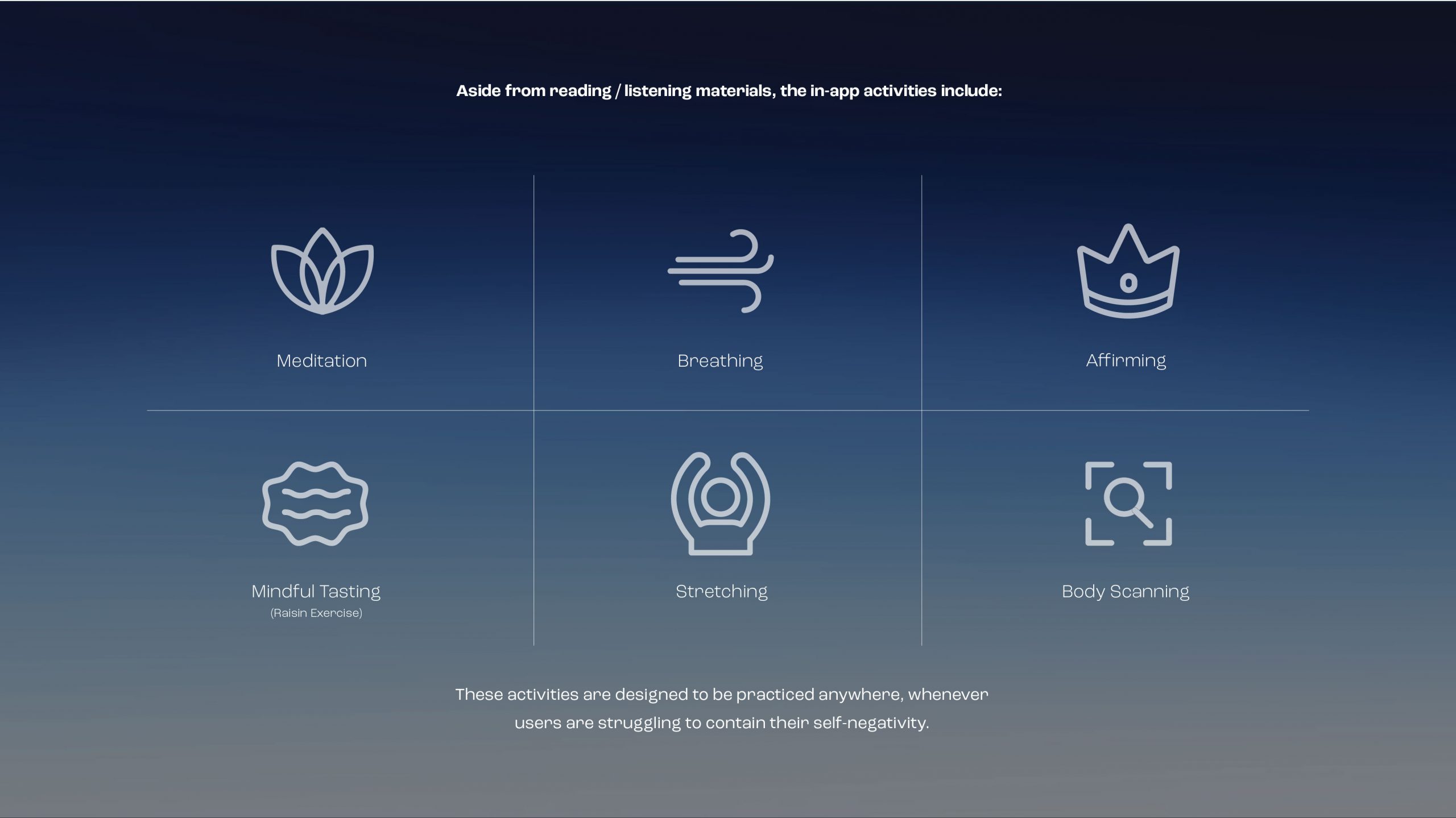
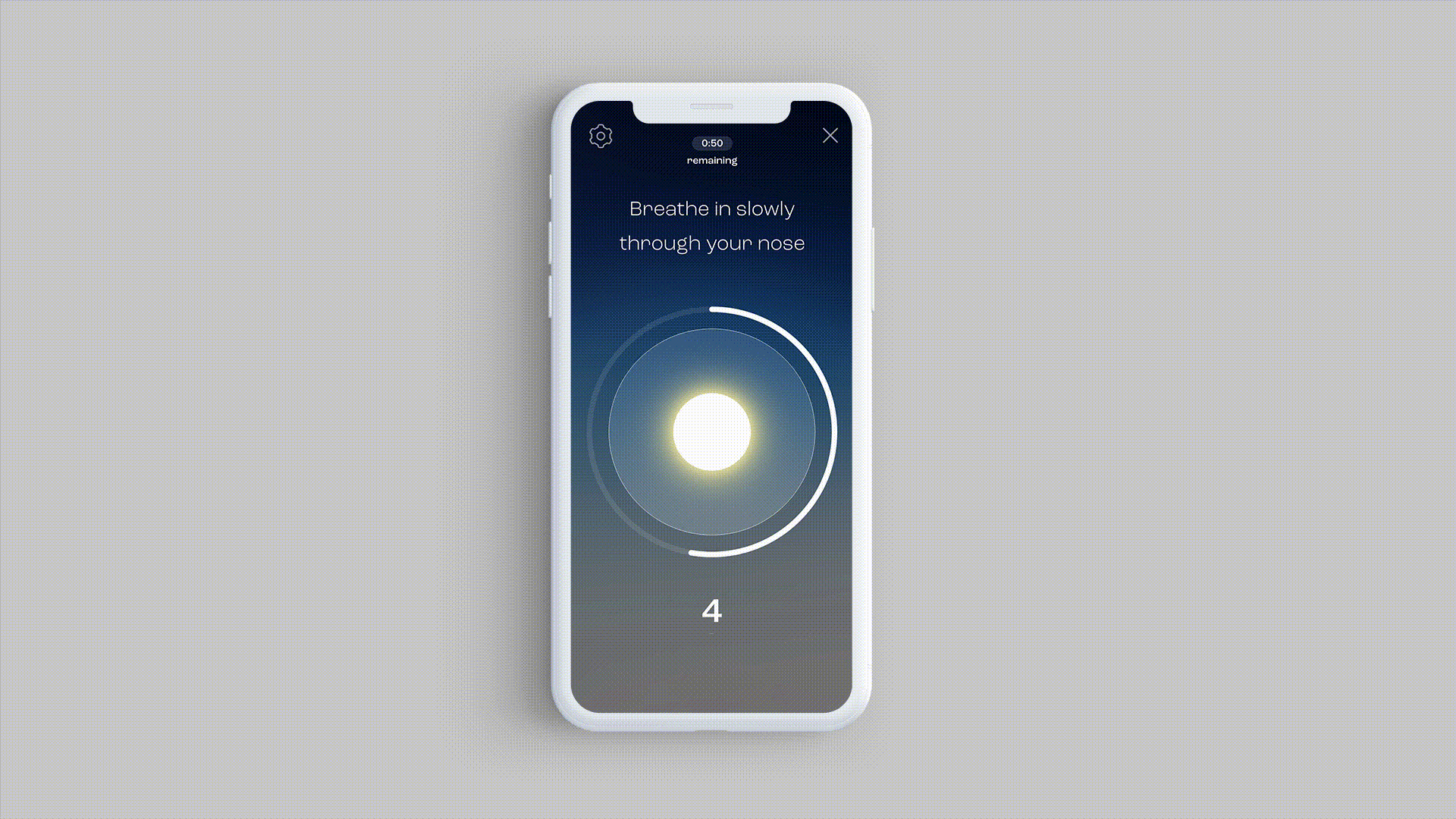
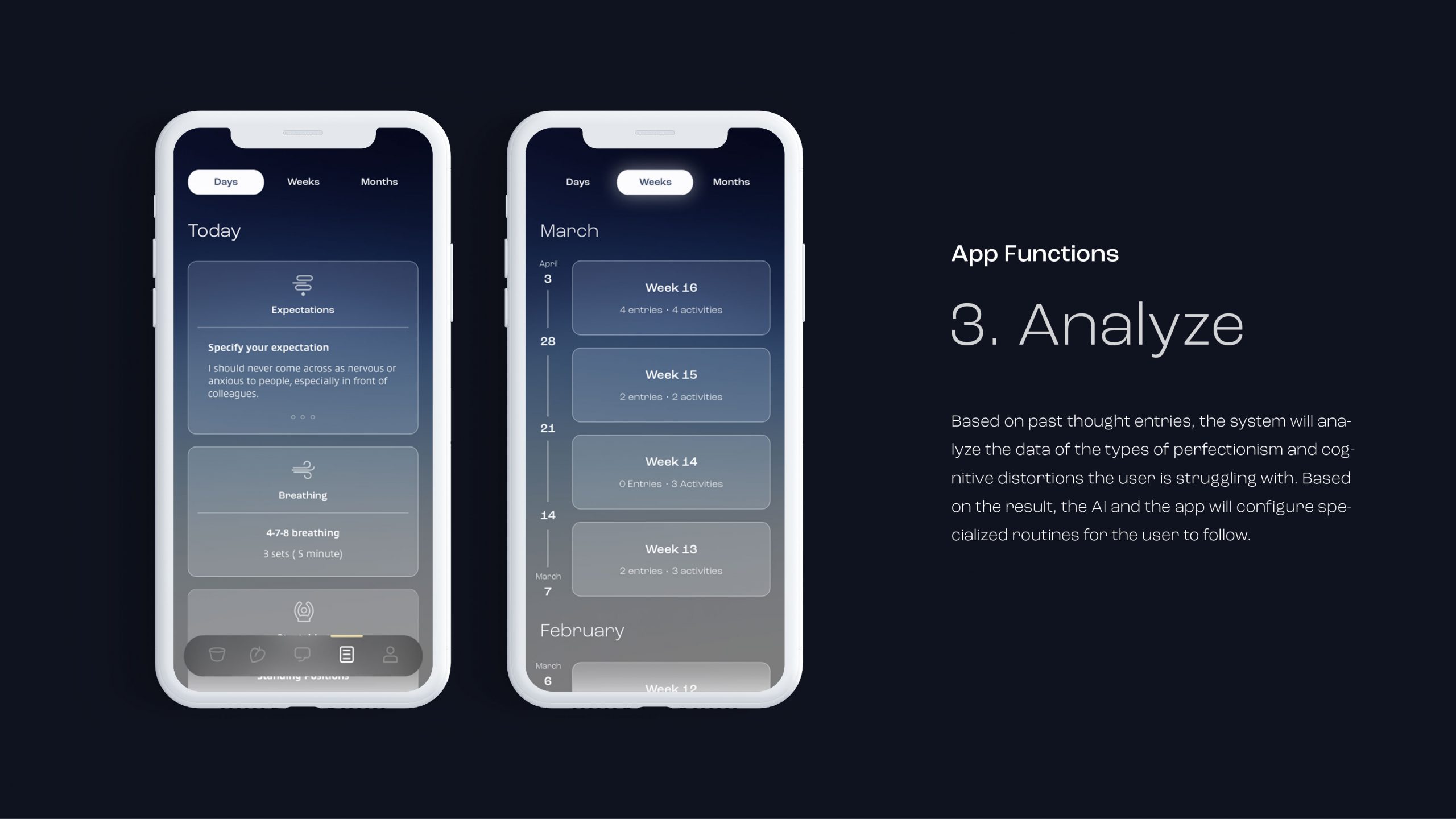
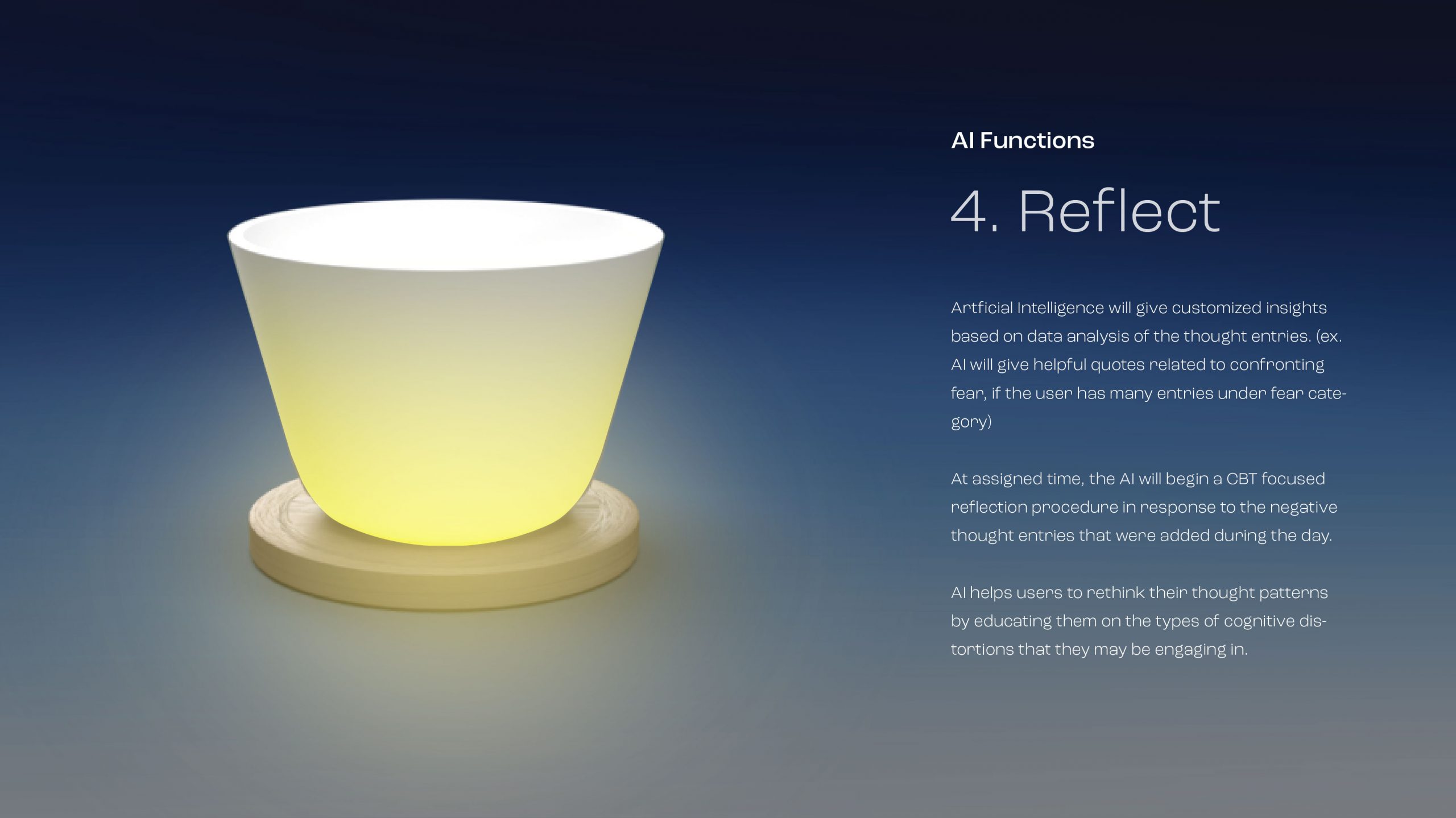
Award Recipient
- ECU Health Design Award for Innovation
